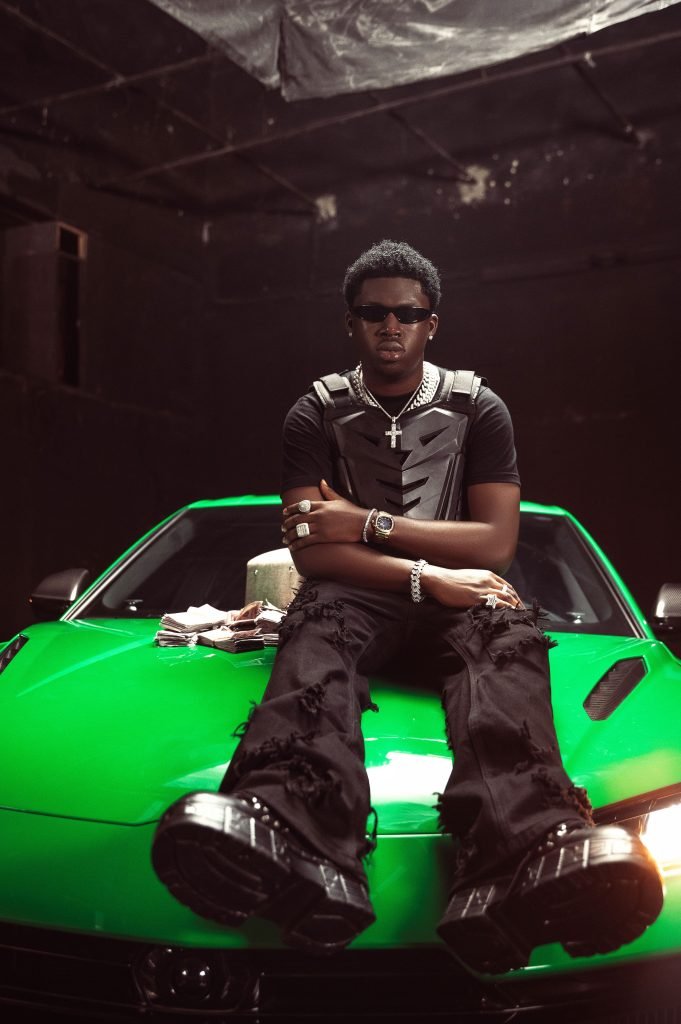
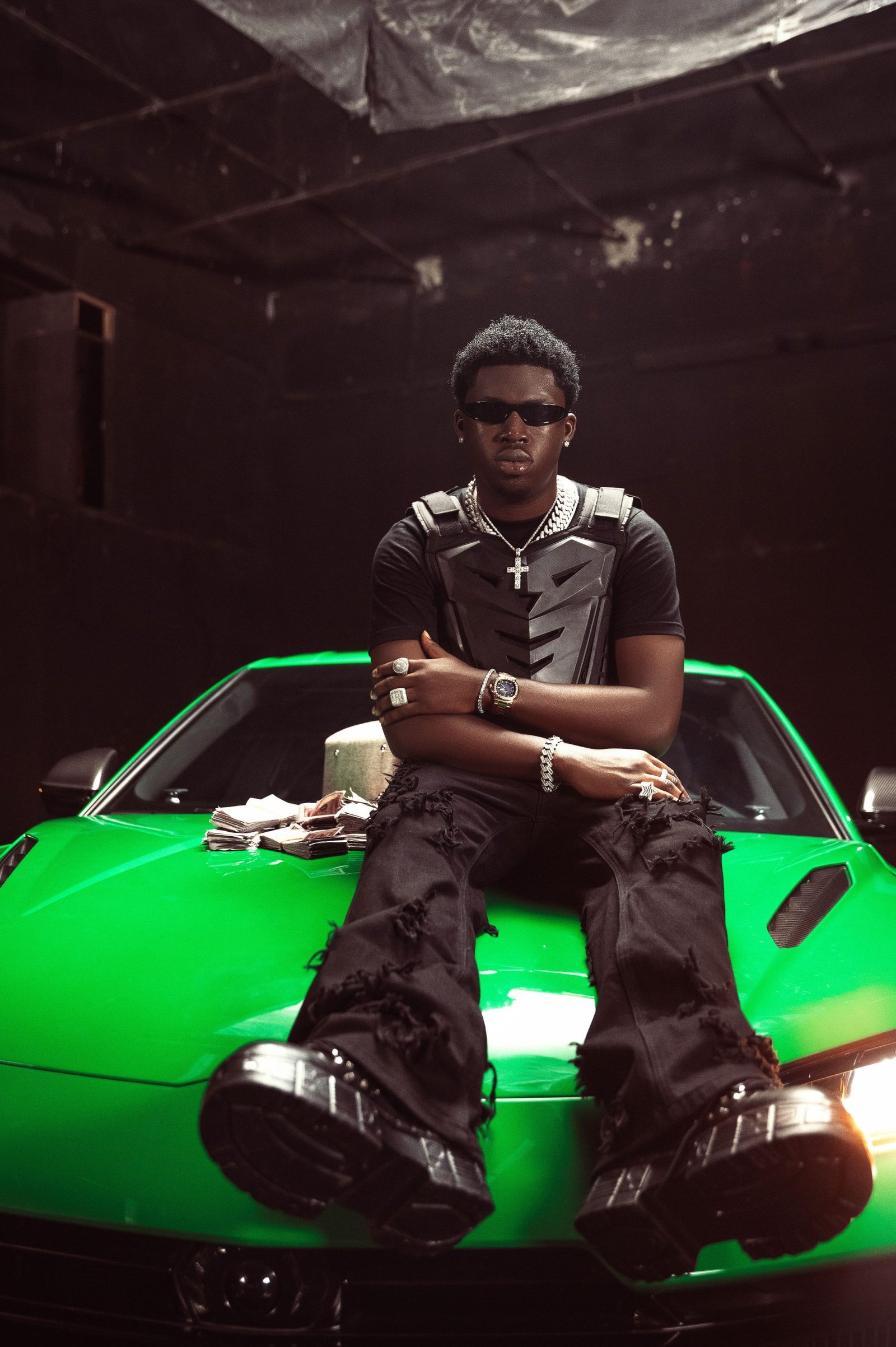
When Igwe Godsent — better known as Hotboy Exclusive — steps into a room, the energy of the room is expected to shift, whether it be his flamboyant style or his voice that carries the confidence of someone who knows he was born to stand out. Yet behind it all is a young artist whose story runs deeper than appearances: a fusion of cultural heritage, global influences, personal struggle, and relentless hunger for greatness.
Born and raised in Benin City, Hotboy Exclusive’s foundation is rooted in the rhythms and traditions of the Edo people. “The rhythms and melodies of traditional Benin music still resonate in my sound,” he reflects, his voice carrying the pride of home. But his story isn’t confined to one place. Time spent in South Africa exposed him to township grooves and South African hip-hop’s vibrant energy, while his current base in Lagos fuels him with the city’s bold, chaotic, and unrelenting pace. “Lagos has a way of pushing you to be bold and innovative,” he says. “The city’s fast-paced rhythm and diverse influences have helped shape my unique sound.”
That sound is what he calls a fusion of street sensibility, melodic flows, and Edo swag. Afrobeats collides with trap, storytelling laces through catchy hooks, and every beat comes charged with his lived experience. He’s influenced by Wizkid’s global adaptability and Lil Baby’s raw storytelling, but his delivery is resolutely his own: gritty yet melodic, infectious yet grounded. “I’m all about being raw, honest, and authentic,” he explains. “I speak from the heart, sharing my experiences, struggles, and triumphs in a way that’s relatable and real.”
The name “Hotboy Exclusive” isn’t a gimmick — it’s a narrative. “Growing up, I was always the one with the fire in my belly, the one who brought the heat wherever I went,” he recalls. The “Hotboy” tag stuck after he began making profits in Forex, with friends calling him “Hotboyexclusive” whenever he made a big move. But “Exclusive” runs even deeper. It’s what his father used to call him — a reminder that he wasn’t just like everyone else. Together, the name represents more than a stage identity. It’s a brand, a vibe, a promise. “Hotboy Exclusive is more than just a name,” he says. “It’s a brand, a promise to deliver something fresh and exciting every time.”
That fiery identity comes alive on stage. High energy, risk-taking, and bold performances define his artistry. “When I’m on stage, I want the crowd to feel the excitement and enthusiasm that I bring,” he says with conviction. “My energy is infectious.”
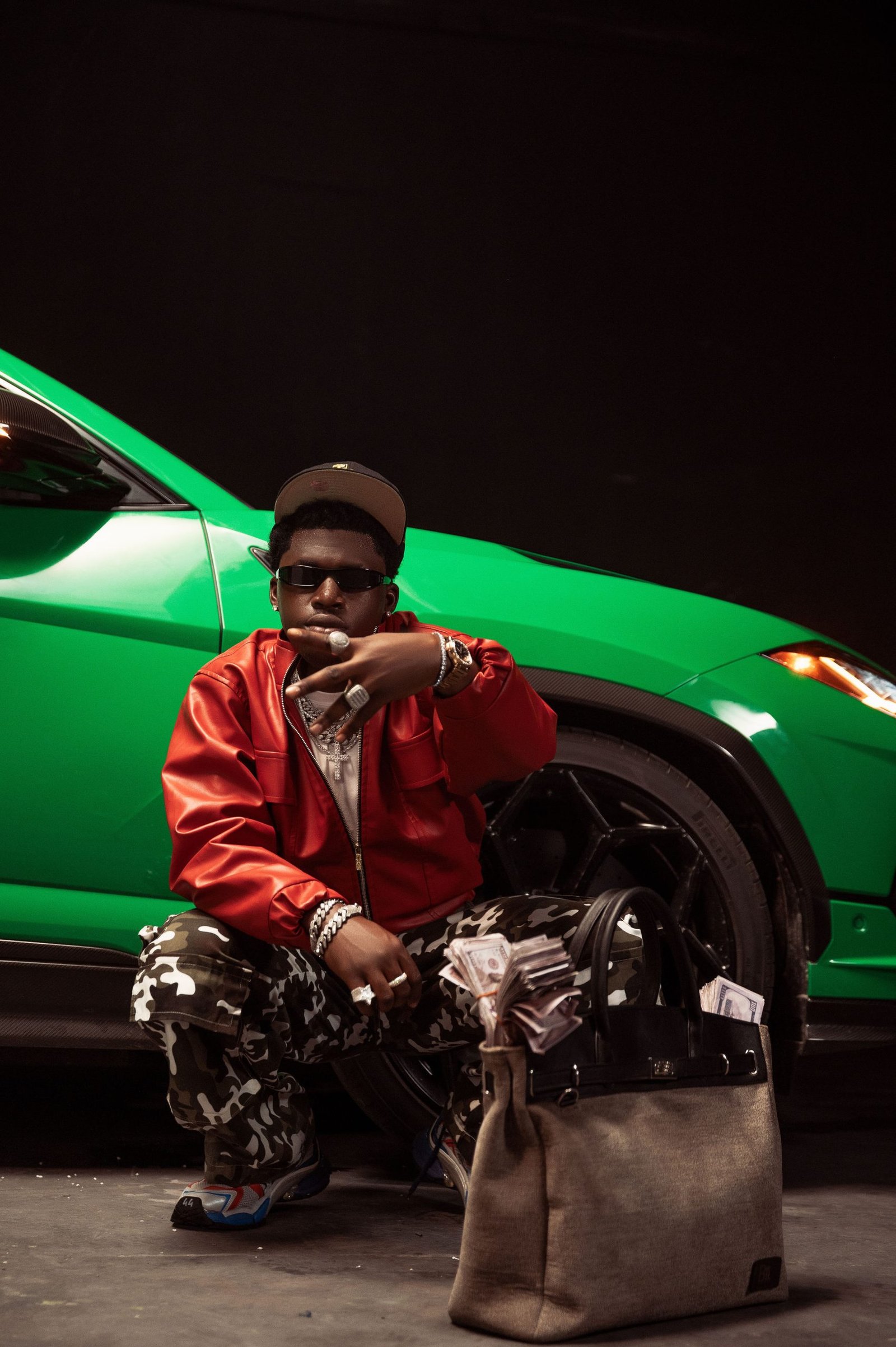
Every artist has a moment of realization, and for Hotboy Exclusive, it came twice. The first was at a polytechnic performance in Lagos, when the crowd lit up to his music, singing along word-for-word. “It was like a switch flipped,” he recalls. The second was when he dropped a single that resonated beyond numbers — the messages from fans who said his music touched their lives made him understand his mission was bigger than himself. That was when he abandoned unproductive distractions and decided to give music his all. “Music isn’t just what I do, it’s who I am,” he says.
The Nigerian music space is crowded, and carving a lane as an independent artist is a fight. Hotboy Exclusive doesn’t shy away from admitting the challenges: funding, visibility, and building a loyal fan base. “As an independent artist, I finance everything myself — music, videos, promotions. It’s tough, but it’s also pushed me to be creative and resourceful,” he shares. His hustle is relentless: networking with artists, promoters, and industry players, while building an organic community of fans online.
But these challenges don’t deter him. Instead, they’ve shaped his resilience. “It’s hard to stand out, but I’ve learned to hustle hard and be proactive,” he says.
His first single, “Exclusive”, is a bold statement of intent. Inspired by self-discovery and the courage to face reality, the track fuses Afrobeats with trap and sprinkles in an Afro-amapiano vibe that makes it undeniably fresh. The studio session, he recalls, was electric: “The beat made me want to move. The hook — ‘Exclusive, it’s time to face the facts’ — just flowed out naturally. We knew we had something special.”
More than just a song, “Exclusive” is a movement. He hopes fans walk away with a sense of empowerment. “I want them to connect with the message and feel strong,” he explains. “Ultimately, my goal is for fans to feel something real. ‘Reality Check’ is a reminder that we’re all in this together.”
Hotboy Exclusive isn’t here to play it small. With his self-owned label, Hotboy Inc, he’s building a brand as bold and fearless as his music. Collaborations are on the horizon, with Afrobeats stars and international producers, alongside ambitions in fashion, lifestyle, and global touring. “I’m conscious of the global audience, but I stay true to my local flavor,” he says. “It’s about creating music that’s rooted in my culture but speaks to the world.”
For Hotboy Exclusive, this isn’t just about fame or charts. It’s about legacy. It’s about being remembered as the artist who brought fire, grit, and authenticity into a world that often demands conformity. “I’m Hotboy Exclusive — the real deal, straight from the streets, unapologetically me.”
Editor: Andrea Andy for A&R Duty
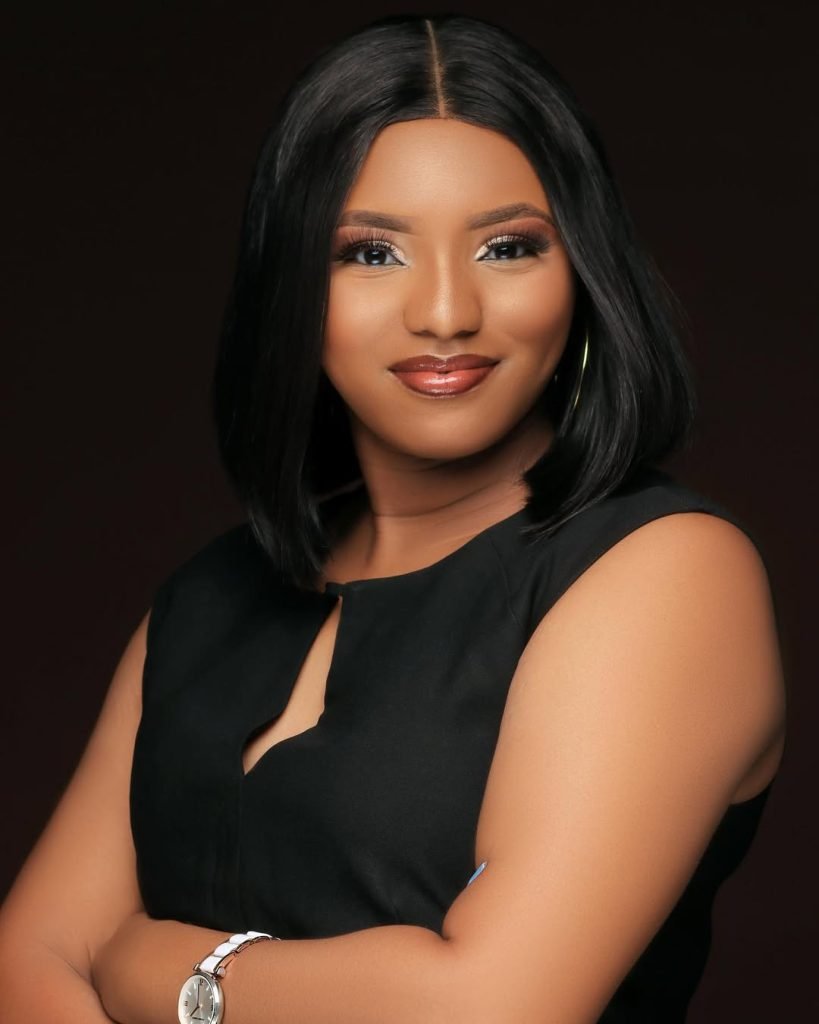
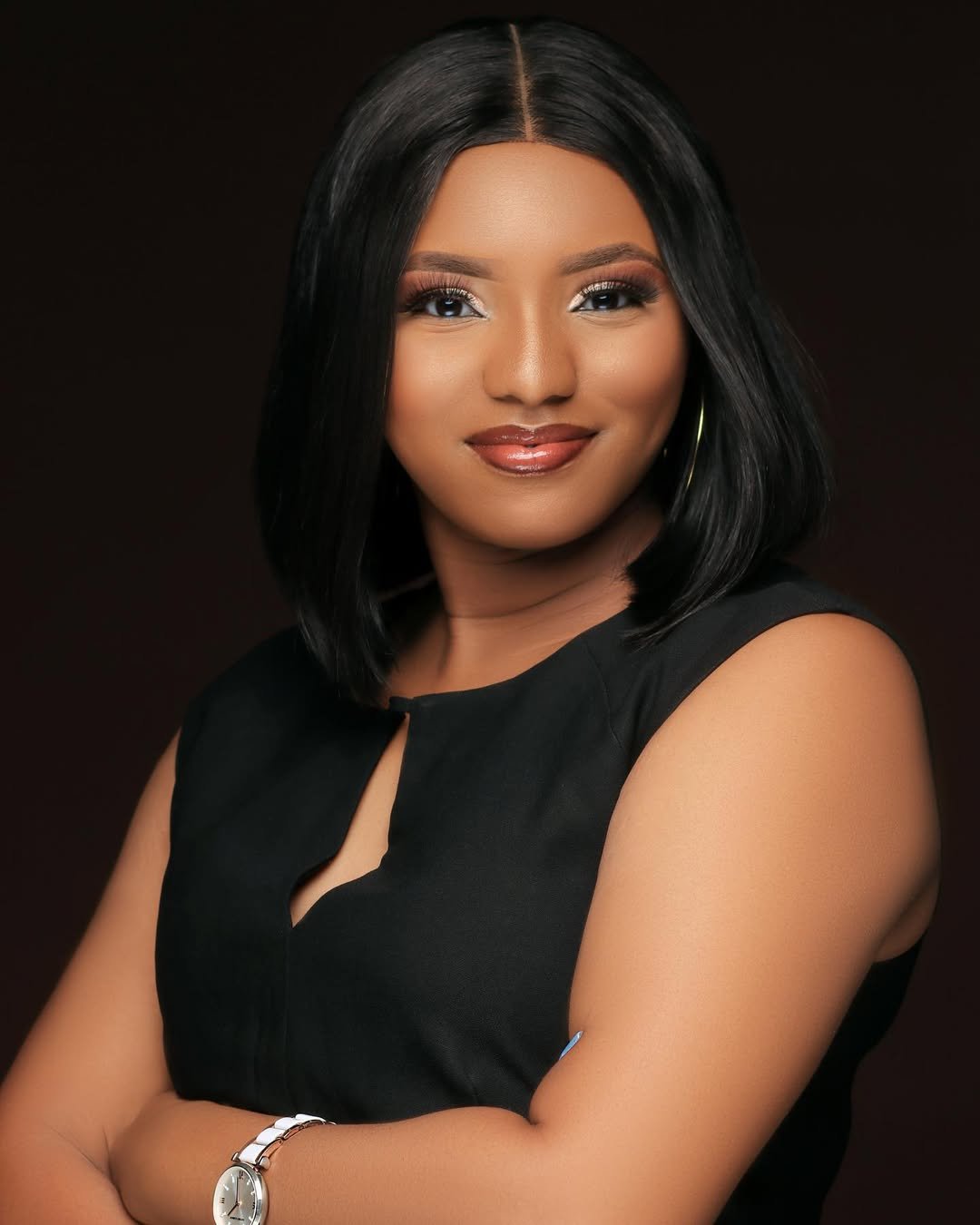
By Andrea Andy | The Book Series – A&R Duty
In an industry often measured by algorithms, numbers, and name-drops, few carry the balance of heart, insight, experience, and fire like Chioma Okoro — the powerhouse known as OHRMA. With a name as unique as her approach, OHRMA is not just navigating the music industry; she’s shaping its future.
The Book sat down with her to uncover the intimate, raw, and vibrant journey that brought her here — from her childhood curiosity and sharp instincts to building her own company, working with top talents, shaping narratives, and making space for the next generation of music leaders.
Before the credits, the consultations, and the commanding rooms, there was “Chioma.” When asked about the name “Ohrma,” she chuckled. “It’s very random,” she said, explaining how she needed a unique IG name. With many versions of “Oma” already taken, she came up with her own twist: “Let me just spell it like this — and it stuck.”
But beyond just sticking, it stood for more — a name that now carries vision, legacy, and an evolving movement of purposeful artistry and leadership.
OHRMA studied Theatre Arts at the University of Port Harcourt, majoring in acting. But soon, a new realization hit: she was better at guiding others than performing herself. She was advising her peers about their careers, spotting potential, and instinctively offering strategy.
“I didn’t know what it was at the time,” she said. “But I was just… good at giving career advice.”
From there, life connected the dots. Her sister introduced her to someone in the music business, and soon she was following Godwin Tom on social media. “I didn’t even know who he was then. But when I found out he was recruiting interns, I shot my shot.”
She was selected. That marked the beginning — 2018 — of a now seven-year journey.
When asked what being an A&R meant to her, she answered passionately: “It’s something I enjoy. It’s not a chore. It’s not about making money. I love it.”
She has what she calls an “ear gift” — an innate ability to detect when something is off in a song. “Even in my sleep, I can rearrange your song,” she said with a laugh. “I unconsciously just do it. I’m even considering going back to the choir.”
One of her lightbulb moments came while casually remixing a song — a version that later featured Amaarae. “Even now, as I talk about it, I’m like… wait, that happened!” That moment confirmed she wasn’t just in the game — she was changing it.
OHRMA’s creative process is strategic and instinctive. She enjoys decongesting her mind with movies, but in the studio, she’s laser-focused. “I listen, I observe, then I help guide them. I suggest what we can create.”
Despite the chaos, she listens deeply. “Creatives are opinionated — divas, even. But it’s all about approach. I let them talk, then I pitch my thoughts. And it works.”
OHRMA is a woman of integrity in an industry that sometimes lacks it. She talked about her deep gratitude to GT (Godwin Tom), one of the execs who has been “through and through” with her journey. “If he says it’s blue, it’s blue. A good name is better than riches.”
This perspective informs her own mentorship model. “I’m not just doing this for me. I’m doing it for the ones I will mentor… and the ones they’ll mentor. That’s how an ecosystem is built.”
In an industry saturated with “fine boys” and flashy mediocrity, she urges artists and execs to “do due diligence. Don’t block the road for others because of selfishness.”
The Nigerian music industry has seen wild global growth—but it’s not without its cracks. Ohrma highlights lack of structure, poor due diligence, and clout-chasing execs as major barriers. She’s met artists who burned 10 million naira on fake promises, only to arrive with 500K and a broken heart.
“When you give someone a role, make sure they know what they’re doing. If not, they’ll block the road for the next person.”
She points out that some artists now carry global recognition, like Rema, who is “intentional” and “wise beyond his years.” But she also warns artists at the top to speak kindly of Afrobeats on global stages. “Protect your own first,” she urges.
As a woman, she’s had to work twice as hard to be heard. “It’s an industry saturated by men,” she said. “Two people can do the same work, but the man’s opinion is preferred. What makes the difference? Deliverables.”
For Ohrma, being a woman in music is a double effort. “You’re expected to be excellent before you’re even heard,” she says. She admits women can be “dramatic,” but also deeply powerful. “When you see artists represented by women, you see growth.”
She emphasizes collaboration among women as the next phase of evolution. “Connect. Say hi. Don’t let your phone be your only ally in the room.”
Her hope? To see more women connect, work, support, and build together.
From playlist curation to digital distribution, artist development to talent scouting, Ohrma’s resume is a buffet of industry roles—each one deeply explored. “I didn’t want to wear all the hats, but I had to understand them,” she explains.
After experiencing an artist betrayal that nearly set her back, she dove into learning everything—marketing, rollouts, PR, streaming strategies. “So no one can whine me for my clients,” she says, not with pride, but precision.
Despite not always “blowing her trumpet,” OHRMA has been behind many major projects — some public, many lowkey. From facilitating talent development through MBA for Africa, to sound design, artist development, and session direction — her fingerprint is evident in the elevation of numerous talents.
She’s also helping to shape educational infrastructure. Through Music Business for Africa, she not only scouts artists, but also guides students through real-world simulations of what being an exec means.
When asked about noise in the industry, she said, “A lot of people are performing signs and wonders, but they’re just collecting money.” It was both hilarious and piercing. The real issue, she explained, is intent and integrity. “What matters is success rate. Every other thing is noise.”
She’s walked away from opportunities that didn’t sit right — including moments where budgets were mismanaged and trust was broken. “There’s no economic value for grudge,” she said firmly. “Keep it moving.”
OHRMA’s success isn’t measured by clout — it’s about targets. “Money is the reward, not the angle,” she said. “I want to hit my goals, transition into a different industry, and bridge the gap between music and wherever I go next.”
She’s currently grooming younger women through her company, taking on interns, and ensuring that what she’s building doesn’t end with her.
Her scouting process has matured. “Now I focus on quality control. Vision alignment is everything.” For her, success isn’t just about being hot — it’s about being right.
One of her superpowers is spotting talent before the noise. She once got approached to fix a project days before flying out — she made a few corrections, and that led to a remix that featured Amaarae, who was peaking at the time. “I didn’t even realize what I had done until later.”
Looking back at her seven-year journey, she chose one word to describe it: Intriguing. Not exciting. Not chaotic. But a tapestry of challenges, milestones, and unexpected wins.
“There were moments I didn’t understand at the time, but they shaped how I think today,” she said. “I didn’t even celebrate some wins because I was always on the move. But now I look back and I’m like, yeah… I did that.”
If there’s one resounding philosophy Ohrma embodies, it’s this: “There is no economical value for grudge.” It’s a mantra she repeats multiple times in our conversation—softly but firmly, like someone who’s seen too much to waste time on pettiness. She shares stories of being misinterpreted, misrepresented, even subtly sabotaged—yet every example ends with the same resolve: forgive, evolve, keep the door open.
This principle isn’t born from naivety—it’s from strategy. “Right here, right now, me and you can fight, and tomorrow we’ll still work together,” she says. And if that’s not a masterclass in industry emotional intelligence, what is?
When asked what success meant, OHRMA didn’t flinch: “Success is being able to transition and still remain relevant. It’s about building people and positioning myself to tap into the next generation.”
Whether she’s directing strategy, grooming talent, setting up projects, or mentoring women, Chioma “OHRMA” Okorois not just making moves — she’s building maps.
Maps for others to follow, expand, and innovate from.
The Book is proud to have her story documented — raw, rich, and radically honest. And as we always say, this is how you carve your name into the annals of music history.
Interview Conducted and Written by Andrea Andy
A&R Duty
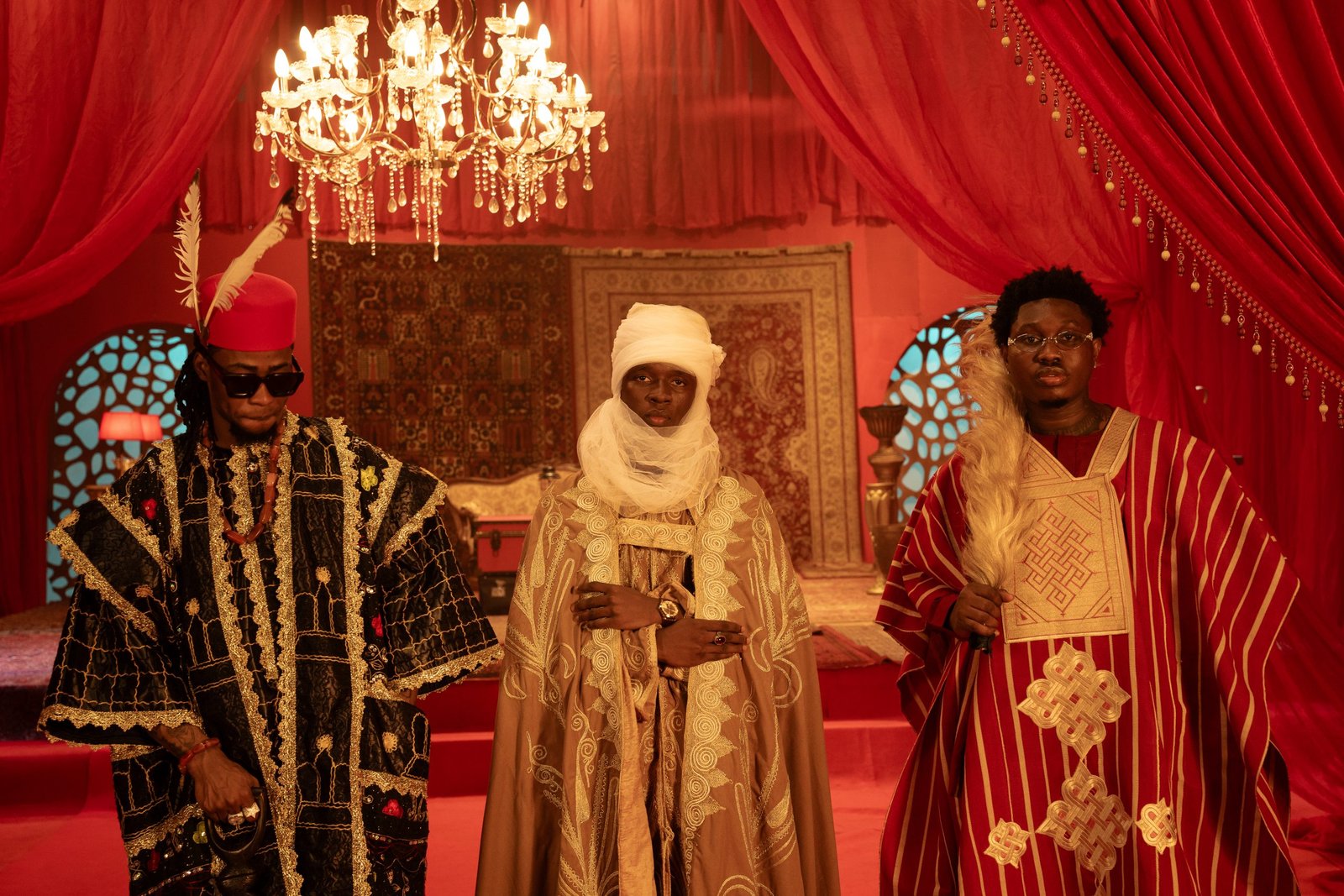
The Book stands as more than just an interview platform—it is a cultural archive, a meticulously curated space where the raw, unfiltered essence of artistry collides with immersive storytelling. Here, conversations are sculpted into living narratives that pulse with the heartbeat of the journey. It’s an intentional documentation of the stories and voices shaping our Nigerian music Industry.
This latest installment with FirstKlaz is a continuation of a dialogue from our inspiring sit-downs over the years—a dialogue that has since evolved alongside his meteoric rise. Fresh off the release of Gen Z Arewazobia, a genre-defying anthem featuring Jeriq and Zlatan, FirstKlaz unpacks the layers of his growth, the birth of Iliya Entertainment and the cultural calculations behind his latest work.
This is not just an interview. This is a chronicle.
The energy is palpable through our conversation. FirstKlaz, ever the embodiment of quiet intensity, leans into the dialogue with measured ease. “I’ve been good—taking each day as it comes, you know? Doing it for the culture,” he offers. It’s a statement that encapsulates his philosophy: a relentless pursuit of authenticity, one day at a time.
A year ago, in our last interview, he laid out his ambitions with the precision of a strategist. Today, those plans are materializing. “From the look of things, it’s all coming together,” I observe. He confirms my thought, but the air holds satisfaction—and the hunger for what’s next.
When pressed on the most significant lesson he’s learned since our last conversation, he exhales, the weight of the question settling in. “Patience. If you rush to get wherever, you will end up making the wrong decisions.” He trails off, recalibrating. The silence speaks volumes. The grind, it seems, has taught him the value of patience—the kind that doesn’t rush the process but trusts it.
Iliya Entertainment, his burgeoning label, is a testament to this ethos. Born from late-night studio sessions, chance encounters, and the unyielding hustle of Abuja’s creative underground, Iliya was birthed as a passion project. He expressed its becoming as organic as breathing.
“It so happens that bands like that are quite common in Abuja,” he explains. “They go around entertaining the people, and they are appreciated for it—in currency.”
But Iliya is more than a platform—it’s a cultural ecosystem. When asked if this would be a long-term collaboration, he discloses that he intends to put out a body of work with them.
Gen Z Arewazobia is not just a song; it’s a manifesto. Featuring Jeriq (Igbo), Zlatan (Yoruba), and his own Arewa roots, the track is a linguistic and sonic tapestry. *”That was the initial idea I had when I made the song,” he reveals. “Before then, I wanted to do that. I knew I wanted Zlatan and Jeriq’s music, but before then, I needed to push big before I was able to approach them.”
This goes to show how FirstKlaz has mastered the art of timing, strategy, and preparedness. He knew that for such a collaboration to come to life, he needed to pay his due diligence—do his homework, create a structure, and ensure sustainability.
The production was a meticulous dance of cultural respect and creative innovation. When asked if there was a particular message or emotion he wanted each artist to embody based on their language—or, in this case, their tribe—he responds:
“Yes. I didn’t even need to direct them on how. I gave them the story of what I envisioned, and they delivered. What I heard after that blew my mind.”
The different cultures and indigenous instruments serve as the cornerstone of the track—a compass guiding its direction. “I needed to get everything right.” The result is a sound that is at once ancestral and avant-garde, a bridge between generations.
The reception to Gen Z Arewazobia has been nothing short of electric—and FirstKlaz is proud of this fact. True to his ethos, he let the track spread organically—no forced virality, no algorithmic games. “Normally, when I put out a song, what I do is allow it to grow organically on fans.”
As for global domination? Let this be marked in the annals of music history: FirstKlaz feels closer to it than he lets on. His Instagram—a cryptic, ever-evolving gallery of studio snippets, fan interactions, and behind-the-scenes moments—hints at a vision that extends far beyond Nigeria’s borders.
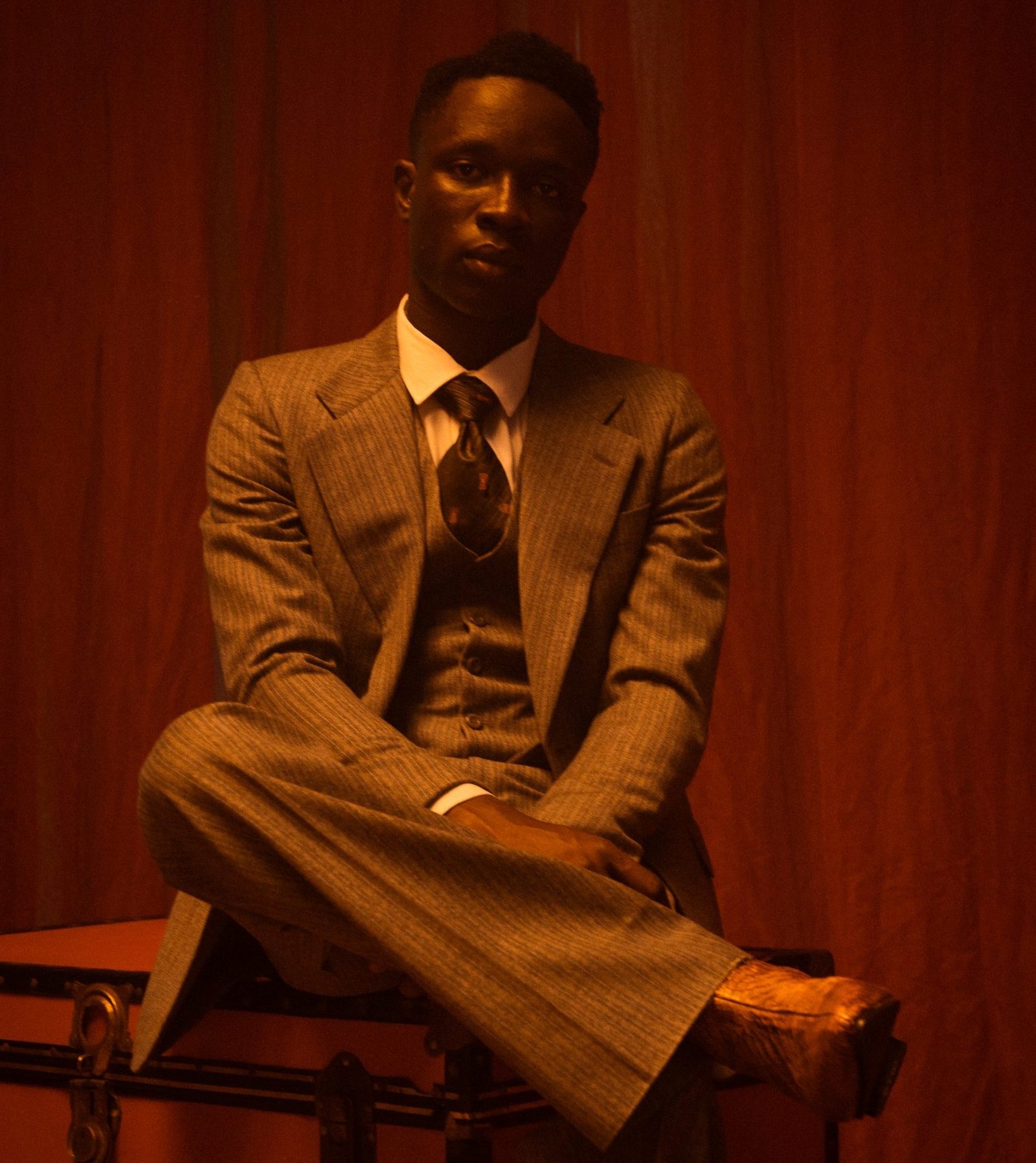
As the conversation winds down, I pose the final question: “Define your legacy now.” The silence stretches—but his words echo louder than any answer could.
“I’ve always wanted everything I do to scream what I really love… I don’t want to do stuff that I don’t feel comfortable doing.”
His legacy, it seems, is still being written—a symphony of cultural defiance, artistic integrity, and unrelenting hustle.
FirstKlaz’s journey, much like his music, refuses to be boxed. And as he signs off from our chat, one thing is clear: the world is just beginning to catch up.
By Andrea Andy for A&R Duty – The Book
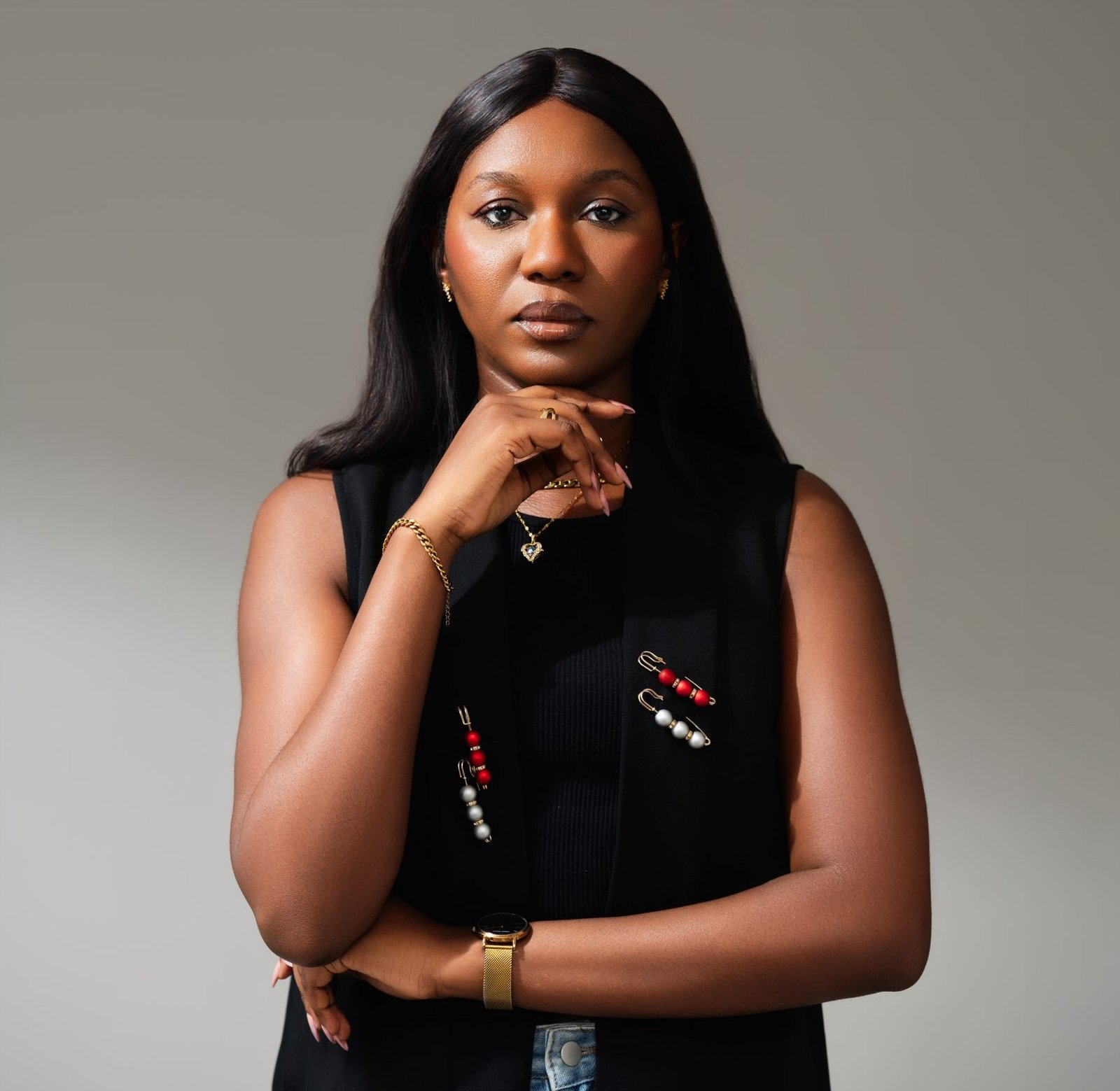
By Andrea Andy for A&R Duty – The Book
Hard work is key, but persistence will open more doors for you.
If you study the Nigerian music industry long enough, you’ll discover that the biggest moments don’t always happen in front of the cameras. Often, they unfold in quiet rooms: a meeting after midnight to finalize a deal, a backstage huddle to sort out a last-minute crisis, a single email that decides where an artist’s next record will land.
It is in these rooms, behind the scenes where few people look, that Tami Romeo has built a reputation as one of the industry’s most quietly influential forces.
Entertainment lawyer. Artist Business manager. Project architect. Founder of Talk to My Manager. A woman who believes excellence is not an act but a habit—and who has made it her life’s work to lift the quality bar for everyone around her.
Tami’s journey into music was as serendipitous as it was intentional.
She had studied law and, like most young Nigerian graduates, she followed the path set before her: she did her NYSC, applied for jobs, and prepared for a traditional legal career.
“I never thought I’d end up in music. It just wasn’t on my radar.”
Then came a day in 2018 that would change everything.
After a job interview with Air Peace in Ikeja, she stopped by her sister’s office at Chocolate City Music. Inside, she crossed paths with M.I.—one of Nigeria’s most respected rappers and music executives.
“He asked me what I was up to. I said I was job hunting. He told me they were looking for an in-house lawyer. Right there in that office, I did an impromptu interview. And just like that, I got the job.”
It was a pivotal moment—a collision between preparation and opportunity. And though she didn’t know it yet, it was the start of a professional chapter that would redefine her purpose.
Tami didn’t arrive with music industry knowledge. In fact, she knew next to nothing about copyright splits, label deals, or touring contracts.
“I didn’t know anything about music law at the time. It was a fresh start.”
But what she lacked in experience, she more than made up for with curiosity and determination. At Chocolate City, she immersed herself in everything: Legal work, Project management, Artist relations. It was there that she worked on the 2019 CBN Tour, a four-city advocacy campaign that used music to drive civic participation.
“We traveled across Nigeria with Ice Prince, Jesse Jagz, Ckay, and Reekado Banks. That project showed me how powerful music can be when you tie it to a cause bigger than just entertainment.”
After Chocolate City, Tami continued her steady ascent:
“I’ve worked in tiny teams of three or four, and I’ve worked in teams with over 90 staff. Each stage taught me different lessons about collaboration, structure, and resilience.”
When The Guy hit No.1 on Apple Music Nigeria, it felt like a validation of years spent honing her craft.
“I told myself: You know what you’re doing. You’ve earned your seat at the table.”
What does it take to manage talent effectively? For Tami, it starts with one word: synergy.
“The first month working with any artist, I don’t even touch strategy. I observe. I listen. Artists will say they want to do stadium tours and go global, but are their habits aligning with that? Are they consistent? Are they putting in the work behind the scenes?”
Her approach is built on structure—meticulous routines that set clear expectations:
“Excellence looks different for everyone. But if you say you want to be global, I’ll hold you to that standard.”
Few people have seen the evolution of Nigerian music up close as Tami has.
She believes the post-COVID era was a turning point:
“2020-2021 gave us some of the best Nigerian albums—Made in Lagos, Somewhere Between Beauty and Magic. The quality went up. Now, we’re seeing a maturity in how artists approach their careers.”
She’s especially fascinated by how artists are finding alternative routes to success:
“Those examples show you that there isn’t one formula anymore. Artists can customize their path.”
She also believes that global partnerships—like Mavin x UMG and Chocolate City x Warner—will unlock new levels of infrastructure.
“In five years, the industry will look very different. The seeds have been planted.”
Tami has navigated a landscape where women often remain under-credited and underestimated.
“People assume the manager must be a man. I get called ‘bro’ or ‘sir’ in emails all the time.”
But rather than internalize that bias, she’s committed to rewriting the narrative.
“I don’t lead with my gender. I lead with competence. When I walk into a room, I see myself as an intelligent professional first. Then I prove why I’m there.”
She’s also building bridges for other women, fostering deeper relationships and safe spaces for honest conversations.
“It can feel isolating to be one of the only women at the table. But we’re slowly changing that. We’re creating a community that doesn’t just look good in photos but genuinely supports each other.”
One of her most emphatic lessons is about credit:
“If you don’t say it, it will disappear. People are not naturally going to give you credit.”
Earlier in her career, Tami believed she could quietly do the work and her results would speak for themselves.
“I learned the hard way that in a noisy era, the loudest voice gets the recognition. If you’ve done something, document it. Talk about it. Because someone else might take credit.”
When asked what she loves most about her work, she doesn’t hesitate:
“Seeing an idea come to life. When you work for months on a project—late nights, back-and-forth calls—and then it finally hits the world and people connect to it? There’s no better feeling.”
And what does she wish more people understood about the business side of music?
“It’s not glamorous. It’s discipline. Systems. Data. Execution. That’s the work that makes the art sustainable.”
Tami leaves us with a mantra worth framing on every office wall:
“Hard work is key, but persistence will open more doors.”
It’s a philosophy she’s proved over and over again—quietly, deliberately, and with the unshakable belief that the work, in the end, speaks louder than any hype.
Whether she’s managing an artist, designing rollouts, or mentoring other executives, Tami Romeo is driven by the same north star: to set a higher standard.
She is a reminder that even in an industry obsessed with fast fame and viral moments, there is still power—and longevity—in structure, clarity, and integrity.
This is The Book.
This is Tami Romeo.
And this is the story of a woman who is quietly—and persistently—holding the strings and showing the rest of us what excellence can look like.
On the side, we played a fun game where I asked Tami her top three picks if she had a “Tami Romeo Playlist,” and here’s the list
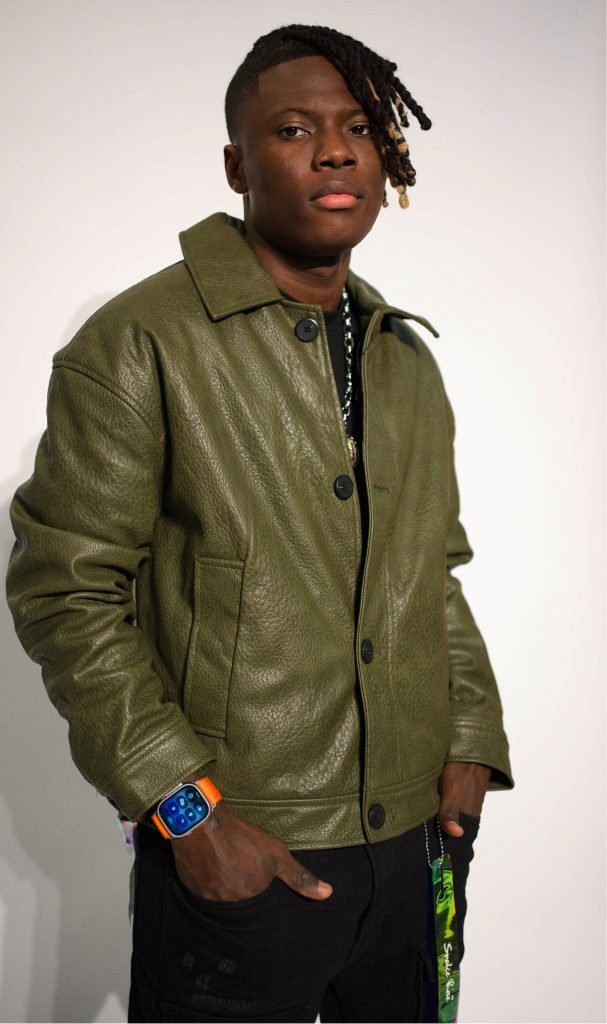
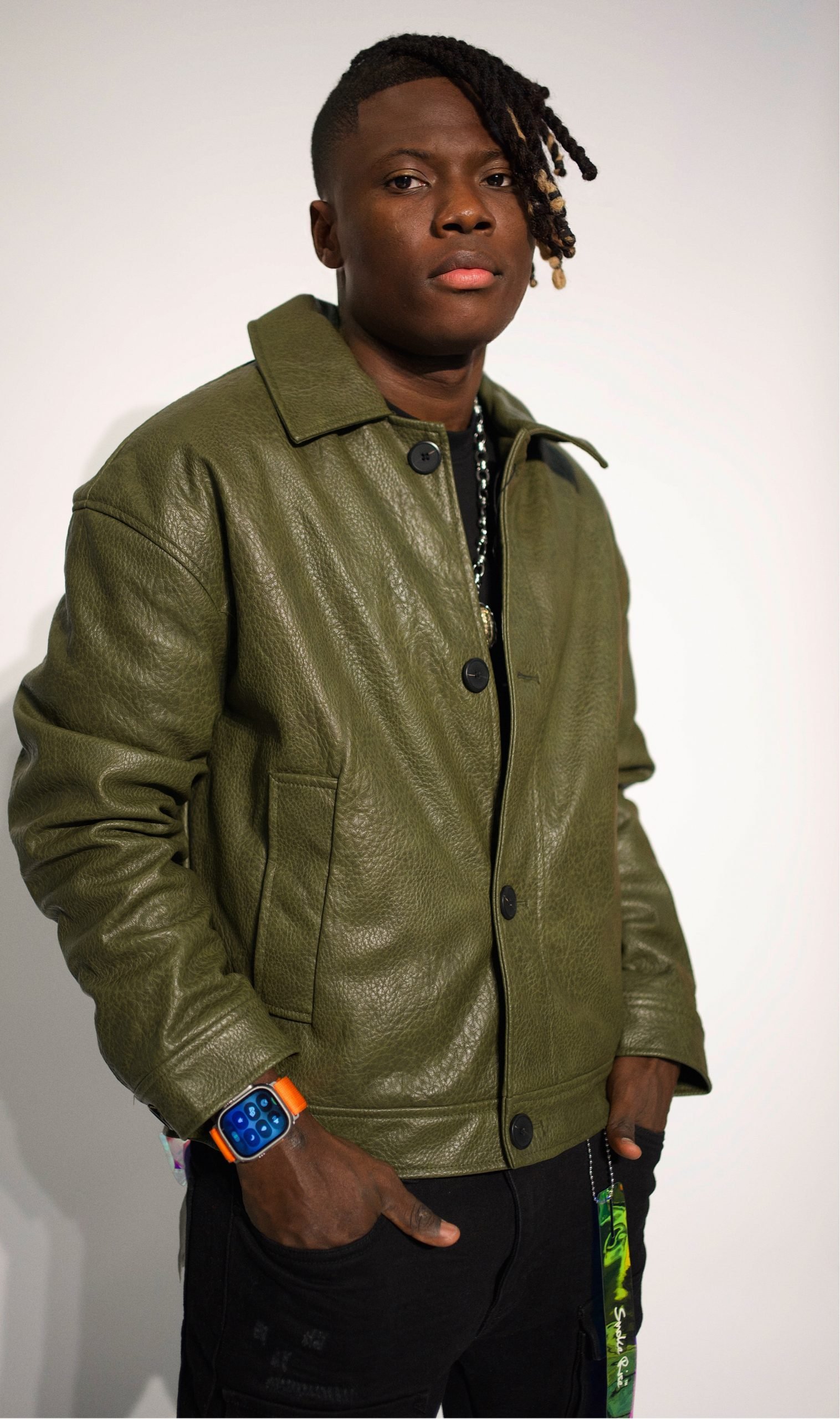
By Andrea Andy for A&R Duty – The Book Series
In a musical landscape brimming with constant reinvention, few artists dare to chart a path so audacious that it bridges cultures, languages, and mindsets. Enter M’Kido — a dynamic force emerging from Nigeria with a Francophone flair, a heart for positivity, and a voice rooted in truth. With his recent release, Orange EP, M’Kido is not just making music; he’s scripting a legacy in a tone entirely his own.
When we caught up with M’Kido for The Book, the energy was palpable from the start. His voice carried the excitement and gratitude of someone who knows he’s walking on purpose.
“I feel good today. Really good,” he chimed, brimming with life. And it wasn’t just small talk. His music, he said, is coming along strongly. Orange is doing more than expected — especially for a debut solo body of work with zero external support. “This is my first time dropping a project like this all alone, no support from anyone. But the reception? It’s been beautiful.”
You see, Orange is no ordinary title. It’s a lifestyle. “Even before the EP dropped, orange had been part of my identity — from my clothes to my home décor. For me, it’s peace. It’s positivity,” M’Kido explained. And indeed, Orange delivers that. Lyrically, emotionally, and sonically, it’s a journey of growth, resilience, and artistic boldness.
“It’s not just about singing for culture,” he said. “I deliver lyrics to people’s hearts. Positivity is what I stand for.”
Every track on the project is a piece of his soul, from the sonically rich “jalingo” featuring Fazil, to the iconic collaboration with industry heavyweight Reminisce, whom he describes as a “father in the game.”
“Each song reflects my journey and evolution. Some songs didn’t even make it onto the project, but everything that did speaks of who I am — my identity and message.”
M’Kido’s music doesn’t blend in — it stands out. His fusion of French, Yoruba, English, and Bambara creates a rich, genre-bending palette. And while critics have questioned his choice to lean heavily into French, M’Kido’s confidence is unshaken.
“A lot of people insult me for singing in French. But I know where I’m going. Through French, I got invited to perform at the French Embassy. The ambassador even offered me visa support. So how can anyone tell me it’s a stupid language to sing in?”
His vision? To craft a new sonic city — a fusion of African textures and European finesse, driven by a personal purpose and a deep sense of originality.
Innovation, however, isn’t without its hurdles. “Sometimes it’s not about the money,” M’Kido confessed. “It’s about the connections that lift your work. When there’s no support, no backing from the industry side, it gets hard. But I keep going.”
His mindset? Focused. Grounded. Visionary.
“Setting trends is pushing beyond boundaries — it’s not about sounding like everyone else. People want me to follow others, but I’m not here for that. I’m here to innovate.”
Despite the challenges, M’Kido is not just surviving — he’s thriving. His TikTok and DSP strategy has been crucial to his growth.
“I’ve faced neglect in the past. But that pain pushed me to be more intentional. TikTok has been a major catapult for me. Steady light, good internet — all of that helped me connect and go viral.”
Beyond the music, he’s leveraging content: behind-the-scenes footage, moments of authenticity, and collaborations that move the needle.
Still, even with a growing fanbase — both online and offline — M’Kido remains deeply aware of the need to set creative boundaries.
“Fans can be weird, but they’re also amazing. I engage with them, but I stay grounded. I protect my mental space and focus on growth.”
That authenticity is the reason his following continues to multiply. He’s not chasing virality; he’s cultivating community.
In a Nigerian music industry that M’Kido describes as “dynamic and competitive,” the pressure is immense. But he doesn’t see that as a problem.
“It fuels my creativity. Everyone in Nigeria is a musician now, but I’m not in competition with anyone. My competition is myself.”
That mindset is also shaping his global ambitions. He draws inspiration from artists like Yemi Alade, who successfully bridged Nigeria with a different culture.
“My plan is to expand into key markets like France, Canada, and French-speaking Africa. I already have a fanbase there. Why not give them music in their own language?”
What happens when the music stops? For M’Kido, there’s life beyond the mic.
“If not music, I’d have been a motivational speaker or an athlete,” he revealed. But even now, he’s already laying foundations. His clothing brand G2P (Guide Us To the Right Path) is a growing venture — one that doubles as a merch line and a message-driven movement.
To those trying to break into music, M’Kido’s advice is clear: talent is not enough.
“Talent without humility will block your blessings. You have to learn — not just your craft, but how to produce, how to adapt. Develop your talent wisely. Be teachable.”
M’Kido’s music isn’t just art — it’s advocacy.
“I want to spark conversations around cultural unity, appreciation, diversity, and modernity. African and French influences can coexist beautifully. We were all human before we became Yoruba, French, or Igbo.”
And when it comes to the history books? He wants his narrative etched in the story of African music transformation — as the priest of a new sound, the torchbearer of intentionality and connection.
“Music is spiritual. It’s not just sound. My goal is to inspire a generation of artists to think beyond borders.”
As the interview wrapped, M’Kido left us with a deep sense of purpose — the kind of clarity that doesn’t come from hype but from conviction. His voice isn’t just a sound; it’s a statement. His presence is more than performance; it’s legacy in motion.
With Orange EP lighting the way and a new sound on the horizon, one thing is certain — M’Kido is not here to follow trends. He’s here to set them.
And in a world desperately in need of authentic voices, his might just be one of the loudest.
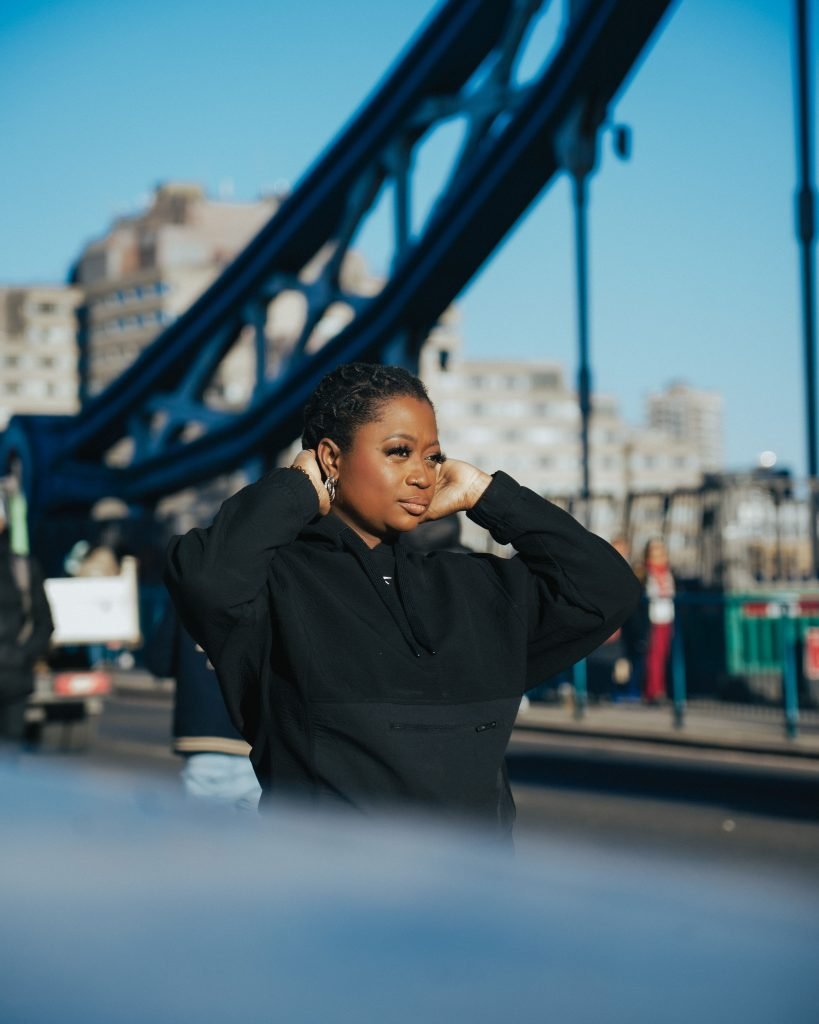
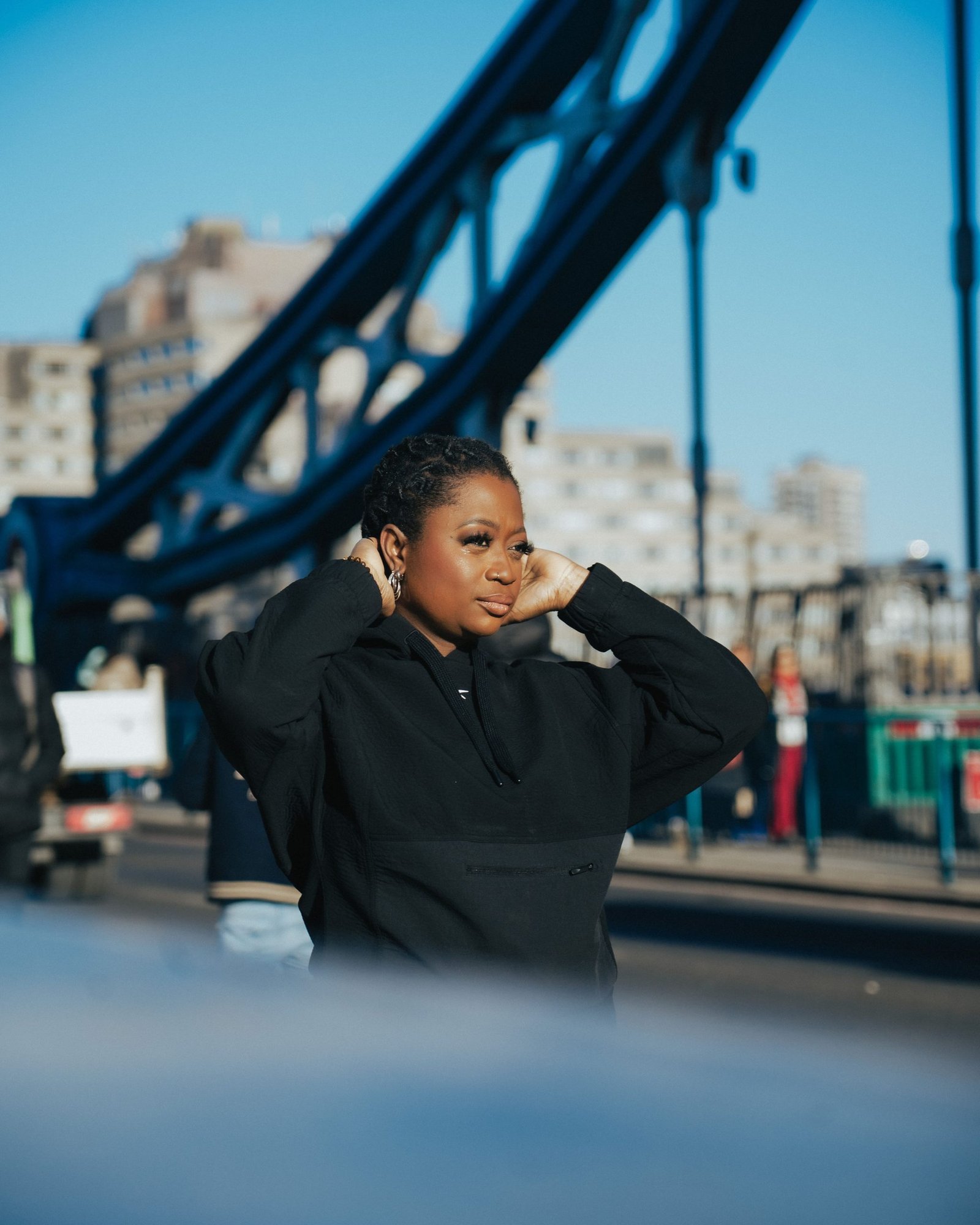
By Andrea Andy | The Book Series – A&R Duty
In a world where beats speak louder than words and soundscapes can transcend time, there exists a name that echoes with calm revolution — Sensei Lo. Known for her signature fusion of Afro rhythms and electronic beats, Sensei is not just a DJ or producer. She’s a cultural translator, a trailblazer, a quiet storm changing the narrative of Nigeria’s music scene one deep synth at a time.
When she hopped on The Book, it wasn’t just another interview — it was a long overdue conversation with one of the architects of Nigeria’s sonic evolution. What followed was an expansive, insightful, and emotionally layered deep dive into her journey, challenges, vision, and cultural impact.
From her earliest memories, music was always more than entertainment for Sensei. It was a medium of expression. “I think everything that has happened over time has happened by design,” she says. Her path, however, wasn’t linear.
Before decks and dance floors, there were scrubs and stethoscopes. A trained nurse, Sensei practiced for years while holding music quietly within her. It wasn’t until 2011 or 2012 that she took her first leap — a friend’s sister’s naming ceremony, where she casually took over the playlist. That moment — seeing people react to her music choices — lit a fire that never went out.
By 2014, her best friend, who had landed a job managing a lounge in Elegushi, handed her the ultimate test: DJing in a bustling Lagos beach lounge with zero formal training and no equipment. “There wasn’t even a controller, but I had to make it work,” she recalls. Eventually, her ingenuity convinced the lounge owner to invest in modern equipment — under the condition that Sensei would take full responsibility for it.
That controller became her weekend companion. While working Monday to Friday as a nurse, her Fridays began with her lugging it to the lounge. For eight straight months, she lived and breathed the Lagos nightlife, slowly honing her skills and earning her stripes in a space not built for newcomers — let alone female DJs.
Though she started with Afrobeat-heavy crowds, Sensei always gravitated toward something different: electronic music. At first, the Nigerian crowd didn’t get it.
“People would walk up to me and ask me to play the latest Nigerian songs… even during a themed event called Saturday Night House,” she laughs.
But instead of letting the resistance discourage her, she innovated. Sensei began fusing popular Nigerian vocals with electronic instrumentals, a move that birthed a signature sound that today defines her sets. “I was tired of people questioning what I played. So I decided to meet them halfway,” she explains. The result? A unique blend that satisfied both her creativity and the crowd’s familiarity.
This pivot wasn’t just a stylistic choice — it was survival and expression meeting in perfect harmony.
Sensei’s love for electronic music is deeply personal. “It’s my childhood,” she says. Growing up on MTV in the ’90s, she was immersed in music that felt cosmic — not knowing they were “house music classics.” Gypsy Woman, Whitney Houston’s “I’m Every Woman” — all infused with nostalgic, thumping rhythms that echoed into her adulthood.
“Electronic music is calming. It’s storytelling. A lot of Afrobeat songs end in two minutes. In-house music, two minutes is just the intro,” she explains, beaming.
Her passion is not just to play electronic music — it’s to translate it for Nigerians. To let them experience what she calls “a global language born in Africa but returned in a different accent.”
In 2020, she began producing her own music. That was the moment. “I always dreamt of playing gigs where I’d only play my own music,” she says. Today, her tracks have traveled to Tokyo, Brazil, and beyond. People she’s never met reach out to thank her for giving them joy.
“That’s the purpose. Even if it’s just one person. That’s more than enough for me,” she says with the conviction of someone walking in their truth.
Sensei is one of the few women navigating Nigeria’s DJ scene, and she’s done so without relying on anyone’s validation.
“In the beginning, guys would walk up just to check if I was really the one playing,” she says. “I just smile. Let the work speak.” And it does — loudly.
But if there’s one thing she still craves in the ecosystem, it’s mentorship. “Girls need mentors. Not just someone to teach them decks, but someone to help them believe they can do this,” she emphasizes.
She recalls having to choose between music and agriculture in secondary school, a decision dictated by outdated education systems that prioritized conventional careers. “We were never told we could be both,” she says. “Lack of mentorship cost me years. Now I have to work twice as hard to catch up.”
Sensei’s long-term dream is not just to play — it’s to build. To bring immersive rave culture to Nigeria. To create spaces where people feel seen and moved — spiritually, emotionally, and sonically.
“Electronic music is an experience,” she asserts. “Not just in Nigeria — everywhere in the world.”
She’s working on her second EP, set to drop late this year or early next. It will explore themes of love, grief, and navigating the complexity of life — a reflection of where she currently is emotionally and artistically. She also has exciting collaborations lined up with producers from Nigeria and across Africa.
In what was arguably the most profound part of the conversation, Sensei revealed that electronic music has deep African roots. She spoke passionately about William Onyeabor, a Nigerian funk pioneer from the ‘70s whose electronic production predated many Western “innovators.”
“Documentation is everything,” she stresses. “We didn’t document our stories. So it was easy for others to claim it and sell it back to us.”
Her mission? To correct that narrative. To ensure that Nigerian contributions to global music don’t disappear into undocumented silence.
When asked how she wants to be remembered, her answer was direct: “I want to be remembered as one of the brave ones. The ones who took a bold step when it wasn’t cool. When people didn’t get it yet.”
And bold she is — blazing through a genre many overlooked, proving that sound has no gender, and that music, when authentic, will always find its audience.
Sensei Lo is not just a DJ. She’s a documenter of the past, a curator of culture, and a prophet of sonic futures. Her story reminds us that when you walk in truth, the world eventually aligns with your rhythm.
As she continues to redefine electronic music in Nigeria, her voice — both literal and metaphorical — serves as a beacon for emerging artists, especially women, who dare to walk an uncharted path.
Sensei is not just part of the music — she is the music.
Follow her journey. Listen to her frequency. And remember her name — because history will.
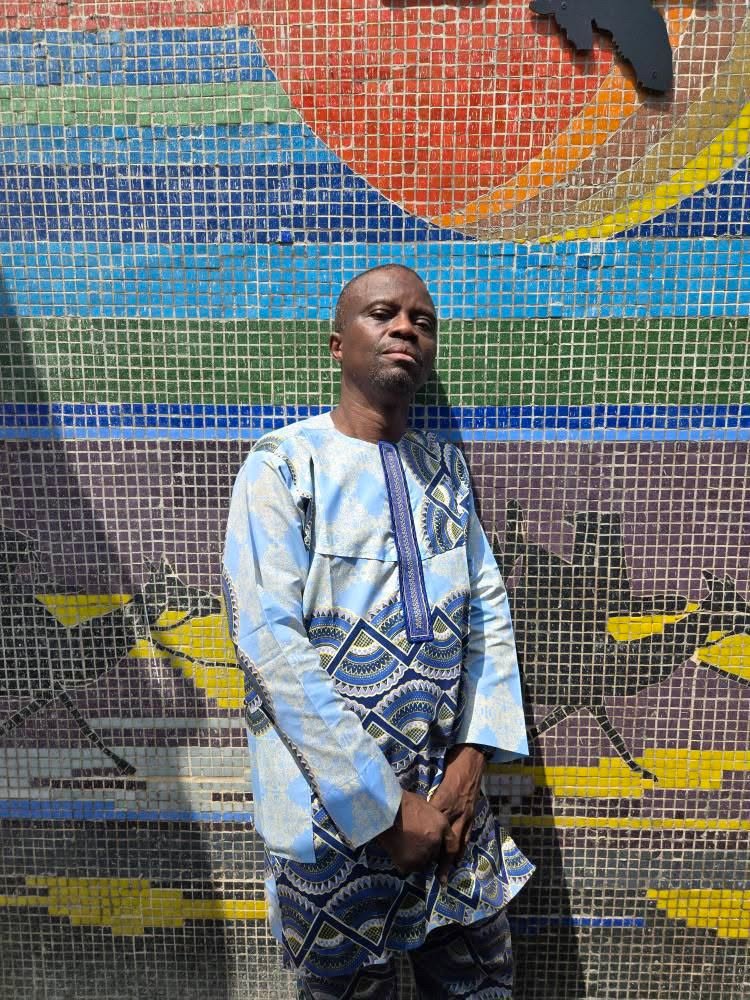

“We are like warriors fighting for the mental liberation of African people.”
– Lemi Ghariokwu
The king of covers in the rich Nigerian Music History. It’s a rare privilege to sit at the feet of a living legend, especially one who carried the weight of Fela Kuti’s beautiful rebellion in strokes of color, and carved out an entire genre of visual protest, without ever attending a formal art school. But for Lemi Ghariokwu, it was never about the institution. It was about destiny.
And on this particular day, in an interview for The Book, I was privileged to hear him tell it—exactly how it happened.
“I became conscious of my artistic talent very early,” Lemi begins, not with pride, but with a calm certainty. “When I was like five, six—I used to draw on the ground. The road where I was born in Agege wasn’t paved, so I’d take broomsticks and draw pleasure cars in the sand.”
He paints the picture in words the same way he would on canvas. A young boy on all fours, drawing dream cars while the world rushed past. One day, a car glided just a foot from his hand before a neighbor pulled him back, scolding him. “But that’s how deep the connection had been,” he reflects.
Despite the pressure from his father, who wanted him to be a mechanical engineer, Lemi never let go of his pencil. “I kept drawing—even in class,” he laughs. “I used to sketch my young, beautiful math teacher in her heels while she taught, completely ignoring the board.”
After secondary school, during the gap before university, Lemi gave himself a challenge: one drawing a day for a whole year. “That was how I became known in the neighborhood. Everyone started calling me ‘that artist boy’.”
One of his earliest commissions came from a military family preparing for a wedding. They had no idea what to gift the officer getting married. “Somebody said the man liked art. So they brought me two photos—one of him in uniform and one of his bride. I redrew them side by side, changed the uniform to lace to match her attire, and presented it.”
It was a hit. Word spread.
Then came a commission from a beer parlour for a Bruce Lee poster. The film: Enter the Dragon. “I painted Bruce Lee, Jim Kelly, and John Saxon. He framed it and hung it up. That poster led a journalist from Punch to me—Babatunde Harrison.”
This was fate.
“He was drinking in the bar and saw the Bruce Lee poster. He asked, ‘Who did this?’ And someone said, ‘That small boy next door.’ He couldn’t believe it. He came to see me, asked to see my other works, and then saw a drawing I had done of a Fela album—Roforofo Fight—as part of my daily challenge.”
“Can you do album covers?” Harrison asked.
Lemi had already done two, casually, for a band and a musician he met at NTA. But he hadn’t thought of it as a career.
Then came the test. “He said Fela was talking about a new cover two days ago. He said, ‘If I bring you Fela’s picture, can you draw it?’”
Lemi was fired up.
He got the photo, drew Fela’s portrait in 24 hours, and framed it with his mother’s help—she even gave him ₦5 to glass it, a big sum back then. “I used to charge ₦30 for portraits. Mind you, a degree holder earned ₦21 monthly. You could rent a room for ₦4. That gives you the idea.”
When Harrison returned the next evening, Lemi was ready. “He said, ‘You finished already? I gave you this yesterday!’ I showed him, and he said, ‘I’m not going to drink—let’s go. I’m taking you to Fela.”
Walking into Kalakuta Republic, Lemi met Fela for the first time.
“He saw the portrait and said, ‘God damn it!’ Then asked for a cheque book and wrote me ₦120. I wasn’t even expecting money—it was a gift! But that cheque gave me value. It told me what Fela thought of my work.”
Lemi refused to take the money. “I said, I give it from the bottom of my heart.” Fela was so moved, he wrote him a gate pass: “Please admit bearer into any show, free of charge.”
That piece of paper? “It was my ticket to Fela shows—and to my professional destiny.”
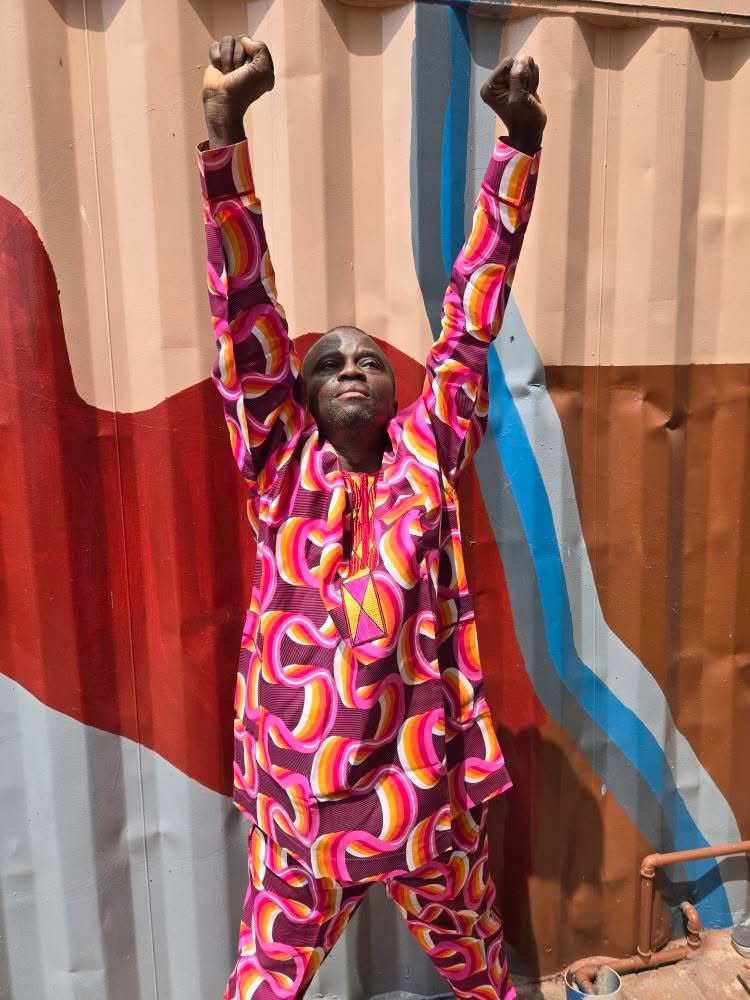
Weeks later, Fela offered Lemi his first official album cover: Alagbon Close. That was 50 years ago.
From there, Lemi would go on to visually narrate Fela’s ideologies, transforming record sleeves into visual manifestos. His favorite? “Zombie.”
“That one was dangerous,” he remembers. “Fela lived right next to a barracks. That album infuriated the military. They attacked Kalakuta, burned it to the ground. A tribunal was set up, and my album cover was used as an exhibit.”
He was on the witness list but never showed. “My mother, she was a seer, warned me not to go. She said she sensed danger. And I felt it too.”
Lemi’s artwork wasn’t just album decoration—it was ideological warfare. With Fela’s permission, Lemi was free to create visual essays that echoed the songs. On the Zombie cover, for instance, he dared to depict soldiers as mindless tools of oppression. It became so controversial that it ended up as an exhibit during a government tribunal after Kalakuta Republic was raided.
“They said we were using innuendo. That was the first time I even heard that word,” he laughs. But behind the humor is sharp intuition. “If I had gone to testify, they would’ve seen me and said, ‘Oh, so this is the boy behind those drawings!’ I would’ve led myself to the slaughter.”
Lemi knew how to survive and how to provoke at the same time. “I’m not aggressive, but I’m a rebel in spirit.”
He escaped what might have been his own abduction by the military.
Beyond Fela, Lemi designed covers for reggae legends like Ras Kimono and even reissues for Bob Marley’s Talkin’ Blues. “It wasn’t his original record, but my credit is there. I designed the Nigerian reissue for Polygram.”
In 11 years, he created over 200 covers for Polygram Records. “I was a freelancer. I never accepted employment. And that freedom allowed me to reflect my spirit in my work.”
Lemi explains how he added a designer’s column to the back of Fela’s records: Designer’s Comment. “Some covers didn’t reflect the lyrics directly. But the commentary helped fans understand the deeper message.”
He became Fela’s youngest advisor, closest friend, and fellow Pan-Africanist.
Lemi didn’t just draw Fela’s world—he lived it.
“I am in this society but not of it,” he says. “I play on people’s psychology. I express rebellion with subtlety, not violence.”
When asked about activism today, he doesn’t hold back:
“The problem is mindset. Not protest. These youths want to cloud chase, not change anything. Our minds are messed up by colonial miseducation. Until we shift mentality, nothing will change.”
His heroes? “Peter Tosh, Malcolm X, Thomas Sankara, Marcus Garvey—firebrands who stood for something.”
Now, Lemi spends his days sharing knowledge with Gen Z. “All my friends are young. They ask why I didn’t protest. I tell them, protesting won’t solve anything. It’s a mindset shift we need.”
He balances ideological work with commercial demands, unashamedly. “Sometimes you need to make compromises. It’s part of life. Compromise doesn’t mean you sold out. Everything has positives and negatives. I know how I’ve navigated.”
A digital artist since 1992, Lemi embraced new tools early. “When NFTs came, I didn’t jump on the bandwagon. But I saw it and said, ‘I’ve been doing this for years.’” His eclectic style allows him to adapt. “I’m self-taught, so I learned from various sources. A journalist once said six different artists must have done those 20 covers. But it was all me.”
Beyond the brush and canvas, Lemi is a philosopher. A spiritual rebel. A fierce advocate for African consciousness. “We Africans… our journey through slavery, colonialism, and self-colonization has stolen our identity,” he laments. “Our minds have been messed up with colonial miseducation. We mirror the Western world. We wait for them to approve before we feel confident.”
He invokes metaphysics: “Know thyself is the greatest injunction. But most people don’t know who they are.”
He criticizes blind hero worship, especially within religion. “Emulate, don’t worship,” he warns. Instead, Lemi believes in authenticity. “If your role is to make revolutionary art, then do it. If your art is for art’s sake, that’s your role too. But don’t do ‘follow follow.’ There is no competition in destiny.”
What should young creatives take away? “Know yourself. Listen to the still, small voice within. Find your uniqueness. Stick to consistency, and it becomes your brand.”
He cautions against comparing numbers. “Some people have 10,000 followers and that’s their peak. That’s okay. Don’t compare yourself with someone who has two million. That’s not your path.”
And finally, he offers a personal mantra: “Time is longer than rope. Life grows fonder with hope. We must hold onto hope. That’s what gets us through.”
Fifty years on, Lemi Ghariokwu stands not only as a master of visual art but as a custodian of truth. A griot with a paintbrush. A rebel with rhythm. His journey—from sand drawings in Agege to museum walls in New York—embodies the transformative power of purpose.
In a world of followers, Lemi is a creator of paths.
And the world is still following.
“I’m not aggressive, but I’m a rebel in spirit.”
Interview conducted and written by Andrea Andy
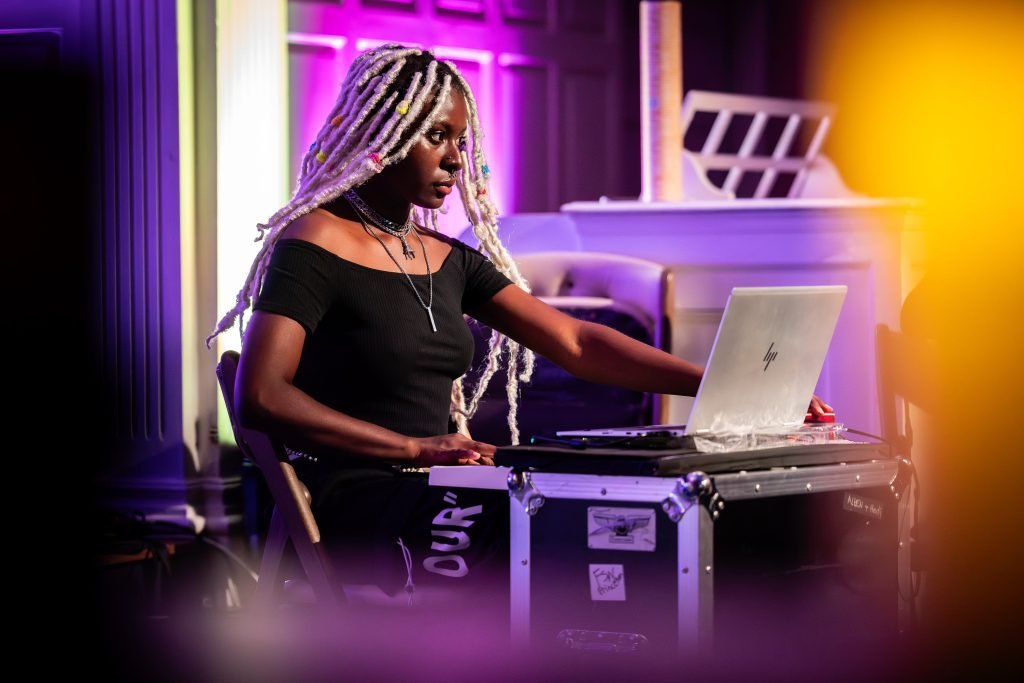
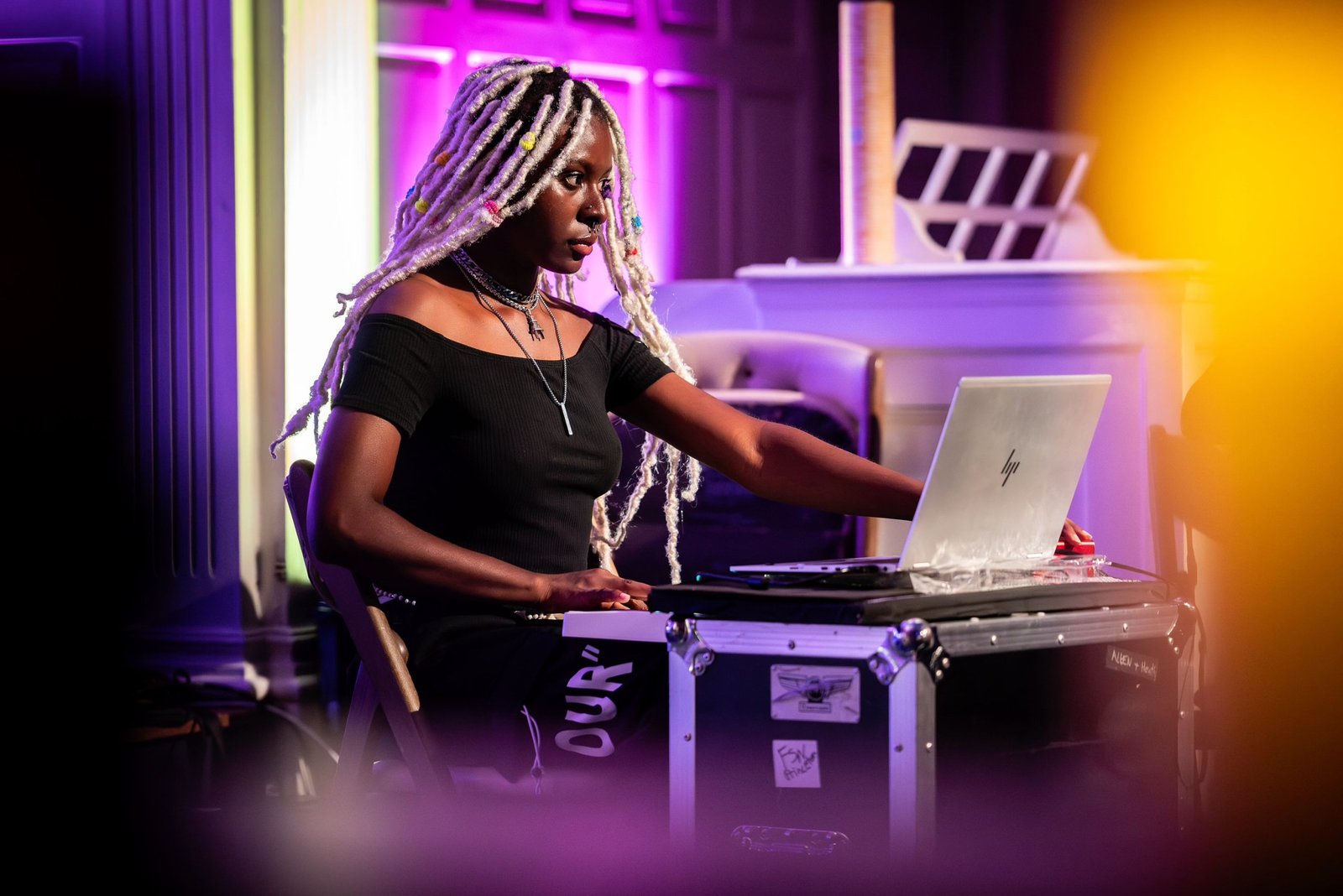
There are people who walk the expected path. Then there are people like Loc, who burn it down and build a new one from scratch.
Singer. Songwriter. Producer. Audio engineer. Call her what you will, but Loc—born Loveth Omasirichi Chisinom is a creative powerhouse who found purpose not through planning, but through spiritual alignment, gut instinct, and an unwavering will to resist the ordinary. From Port Harcourt to Lagos, from scriptwriting dreams to world-class production camps, Loc’s journey is anything but conventional.
And that’s exactly why it matters.
Loc didn’t plan to become a music producer. In fact, she never even imagined it. After NYSC in 2018, she faced what many young Nigerians face—an invisible rulebook that says the next step should be a government job or a 9–5. But she rejected that route outright. “I’ve always been a rebel,” she says, without hesitation. “I always knew my life was bigger than that.”
Her initial plan was to sell movie scripts in Lagos. A natural storyteller, she arrived with hopes of breaking into the film industry. But the feedback was sobering—her scripts required budgets far beyond what most producers were willing to risk. With no fallback, no financial backing, and no intention to return home, she stayed with a friend immersed in music.
And it was there, through boredom, curiosity, and divine orchestration, Loc stumbled upon a beat-making app on her Android phone. She had no idea what she was doing. She was just exploring. Until her friend heard the beats and said, “Do you know you’re literally producing?”
That moment was the spark.
The friend’s producer confirmed it: “You have an ear for good sound. You should be a producer.”
Loc laughed. “I came here to sell movies. What do you mean, producer?”
But something about it stuck. She leaned in. Tinkered. Experimented. Self-taught and fueled by hunger, she downloaded FL Studio and started watching YouTube videos. She built from scratch—no mentorship, no roadmap, no guarantees.
“I had no support from home,” she remembers. “People thought I’d be back in a week. But I knew—I was never going back.”
What kept her going? Purpose. Not the buzzword. Not a cliche. Real purpose.
“Purpose is that thing that lets you sleep at night—even when there’s no money in your account. It’s that deep sense that if the world ended today, you lived a life worth telling.”
Even in the darkest nights, with an empty stomach and an equally empty wallet, Loc was fulfilled. Because she knew—she was becoming.
Music production is male-dominated, especially in Nigeria. Loc wasn’t just up against the technical hurdles of being self-taught. She was challenging a system built to overlook her.
“As a guy, you could easily walk into a studio, meet another guy, and watch him produce. But as a woman, you’re either not taken seriously or you’re expected to offer something else in return.”
So she kept her distance. She stayed safe. And she taught herself.
Even when she did get into rooms, people couldn’t believe what they were hearing. “They’d ask me if I really made the beats. I’m sitting in the producer chair, and they’re still asking.”
Visibility? Low. Respect? Earned the hard way. Opportunities? Always skewed toward men.
Still, Loc persisted.
“They didn’t expect me to be a producer. But once they saw what I could do, they had to respect it.”
She put in extra work. Extra hours. Extra bounce on her kicks. Every beat became a statement: I’m here. I’m capable. And I’m better than you expect.
For someone who started from an Android app, Loc has racked up career milestones that many dream of.
Her first big break came when she was selected for a YouTube and Alicia Keys-sponsored writing camp in Ghana—her first time on a plane, her first major travel experience, all expenses paid.
“It was the best hotel I’d ever stayed in. Good food. Great vibes. And I was there because of my work. That meant the world to me.”
She met Tems. Was on video calls with Alicia Keys. She didn’t just feel seen. She felt affirmed.
Soon after, she entered an all-female writing camp led by the Vice President of Chocolate City, Aibee, and unexpectedly won a competition judged by the legendary M.I Abaga. That win solidified her confidence. “I realized—I’m not just good. I’m worthy. I belong.”
Then came her biggest highlight yet: a fully paid music residency in the United States. She was the only Nigerianselected.
“What are the chances? Out of everyone, I was the one they chose. They paid for my visa, flight, and hotel. All they asked of me was to make music. I still can’t believe it sometimes.”
The moment shifted something even deeper. For the first time, her extended family, once skeptical and dismissive of her path, called her from across the world to say they were proud. It brought her to tears.
Loc wears many hats. Producer. Engineer. Songwriter. Vocalist. And they all feed each other.
“As I’m producing, I’m already mixing. I’m thinking about the instruments, how they’ll sound, how they’ll bounce with the vocals. It’s all connected.”
She thrives in her own creative space but adapts beautifully in collaborative ones. Whether it’s through email ideas or live studio sessions, she finds ways to sync her vision with others’. But truthfully? She gets her best ideas alone. “I need that solitude. That space where I can be fully me.”
There’s a growing tribe of young women in Nigeria who now believe they can do this too. And Loc is a beacon.
“Do it scared. Do it doubting. Just do it. But only if it’s really what you want. This isn’t a career for one foot in and one foot out.”
She doesn’t sugarcoat it. The path is hard. The sacrifices are deep. The rewards are delayed. But the payoff? Eternal.
“Producers don’t have a life,” she laughs. “While artists go party, we stay back with the vocals. But when the royalties start coming, you eat for life. Your children eat. Even when you’re gone.”
Ask Loc what people often overlook about her, and she says this:
“I’m a perfectionist. I want your wildest ideas. I want to try them. I want to outdo myself. That’s the Leo in me. That’s the rebel in me.”
And that’s the mark she’s leaving behind.
Loveth. Omasirichi. Chizinom. Loc.
She didn’t just make it into the room. She built her own. And now, she’s leaving the door wide open for others to follow through.
Interview conducted and written by Andrea Andy
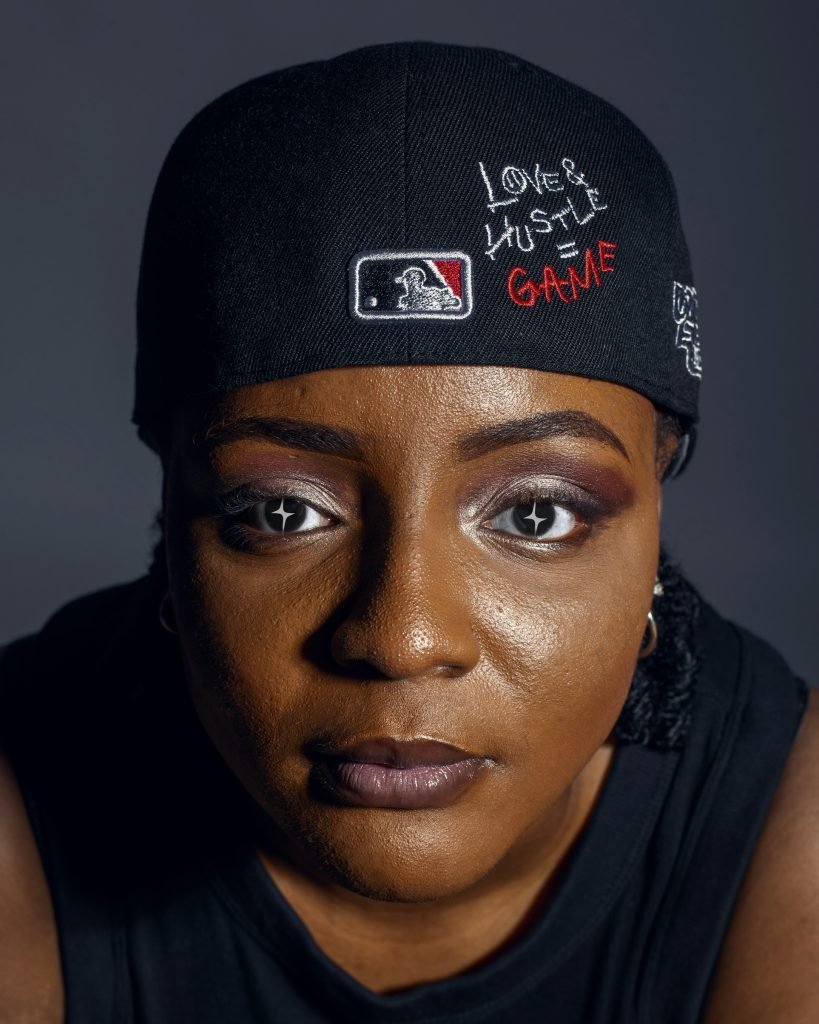
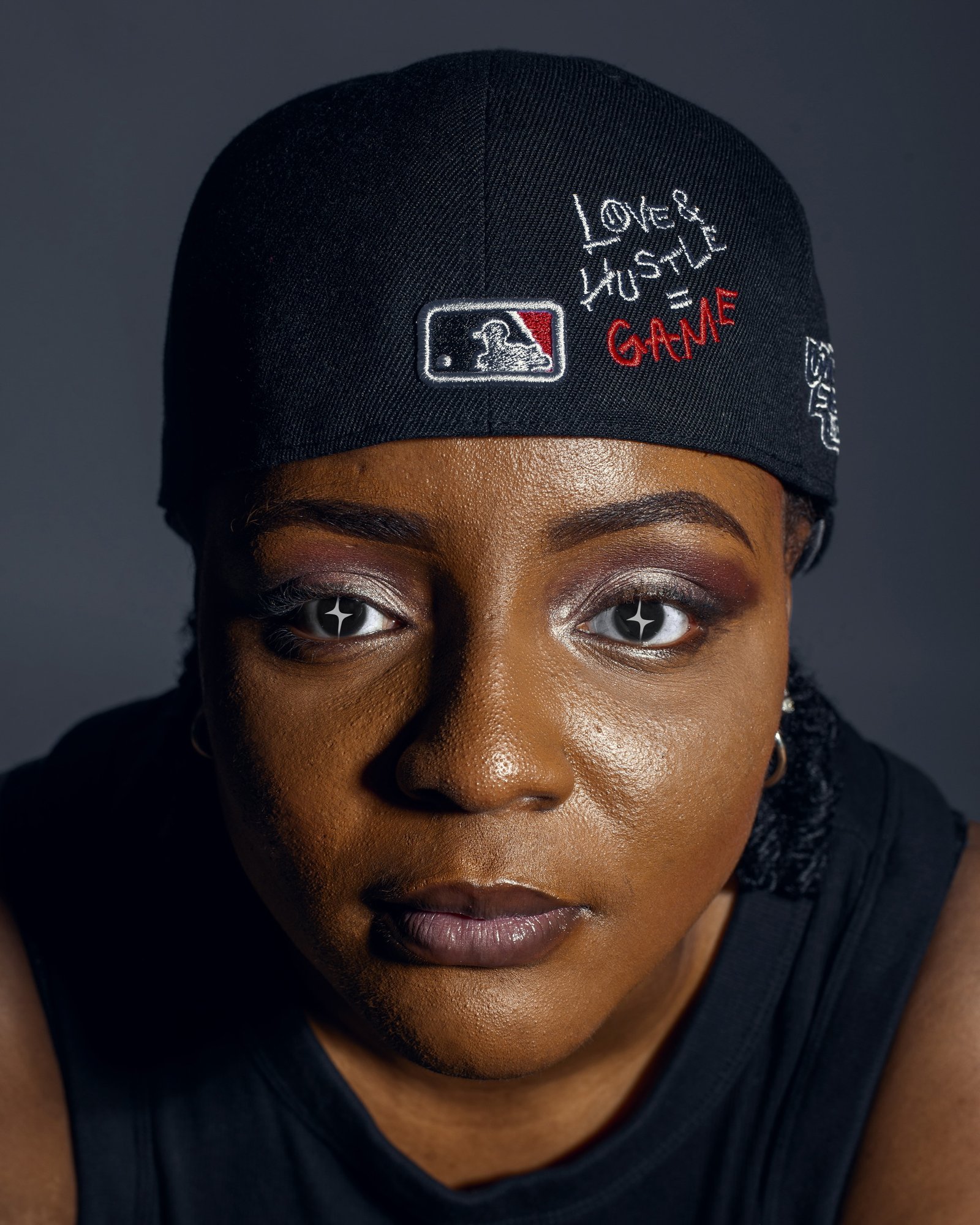
My conversation with Kleros started off with warmth and ease. I just knew that moment was special. It had to be done right. Kleros isn’t just any music producer. She’s a woman making bold moves in a male-dominated field, a changemaker with a story worth documenting. And that’s exactly what The Book is about—stories of the ones daring to do, to shift culture, to break ceilings.
The first time I met Kleros, it was at a Guinness world record attempt by a producer and it was difficult to not see the passion in her and how much she knew her stuff. A woman dominating the same room as men.
I asked how life has been for her since then.
“Progress,” she said, smiling. “A lot more connections, a lot more lessons. That whole experience made me grow. I’ve evolved.”
And it shows.
Every producer has that one moment when the spark ignites. For Kleros, it happened in secondary school.
“I was playing instruments at the time,” she shared. “But one day, I saw someone using production software on the school laptop—my school guardian. I was instantly curious. It felt like I liked watching how music was made even more than listening to it.”
She would borrow the keys to the computer lab on weekends, sneaking in time with the software. That curiosity grew into obsession.
By 2019, in her second year of university, music production had become more than a side passion. “People kept encouraging me. School felt boring on its own—so I added music to the mix,” she laughed.
“I’m the last child. So naturally, I was mommy’s handbag,” she joked. Her mother’s love for all kinds of music exposed her to a wide palette. Her older brother introduced her to hip-hop. “Everything they played compiled in my head,” she explained. “That really shaped the diversity in my sound.”
She also mentioned being largely self-taught.
“I didn’t watch YouTube when I first started. I made a lot of mistakes,” she admitted. “But I’ve always been curious. I watched how people did things. I listened. I asked questions. I learned from their mistakes and from their success too.”
Kleros expressed how she watched people, listened to older people and how she has been a big fan of learning which has also helped shape her Business.
When I asked about the challenges she faced breaking into the industry, especially as a woman in production, Kleros got reflective.
“Sometimes, it’s hard. Especially when you don’t enjoy the spotlight. But in this generation, you have to put yourself out there,” she said. “I used to find that difficult because I genuinely love my space. But I’ve been learning to show up regardless.”
For about two years, she faced a dry spell—where it felt like she was stuck.
“I had to have a serious talk with my mentor. He told me, ‘Focus on what you can control. Work on your sound.’ And that’s what I did. I stopped obsessing over getting in, and I poured myself into improving. Eventually, things shifted.”
She said this helped her discover her strong points, worked on the quality of music and perfect the melodies.
It was through this she discovered she loved the drums and loves to sample songs.
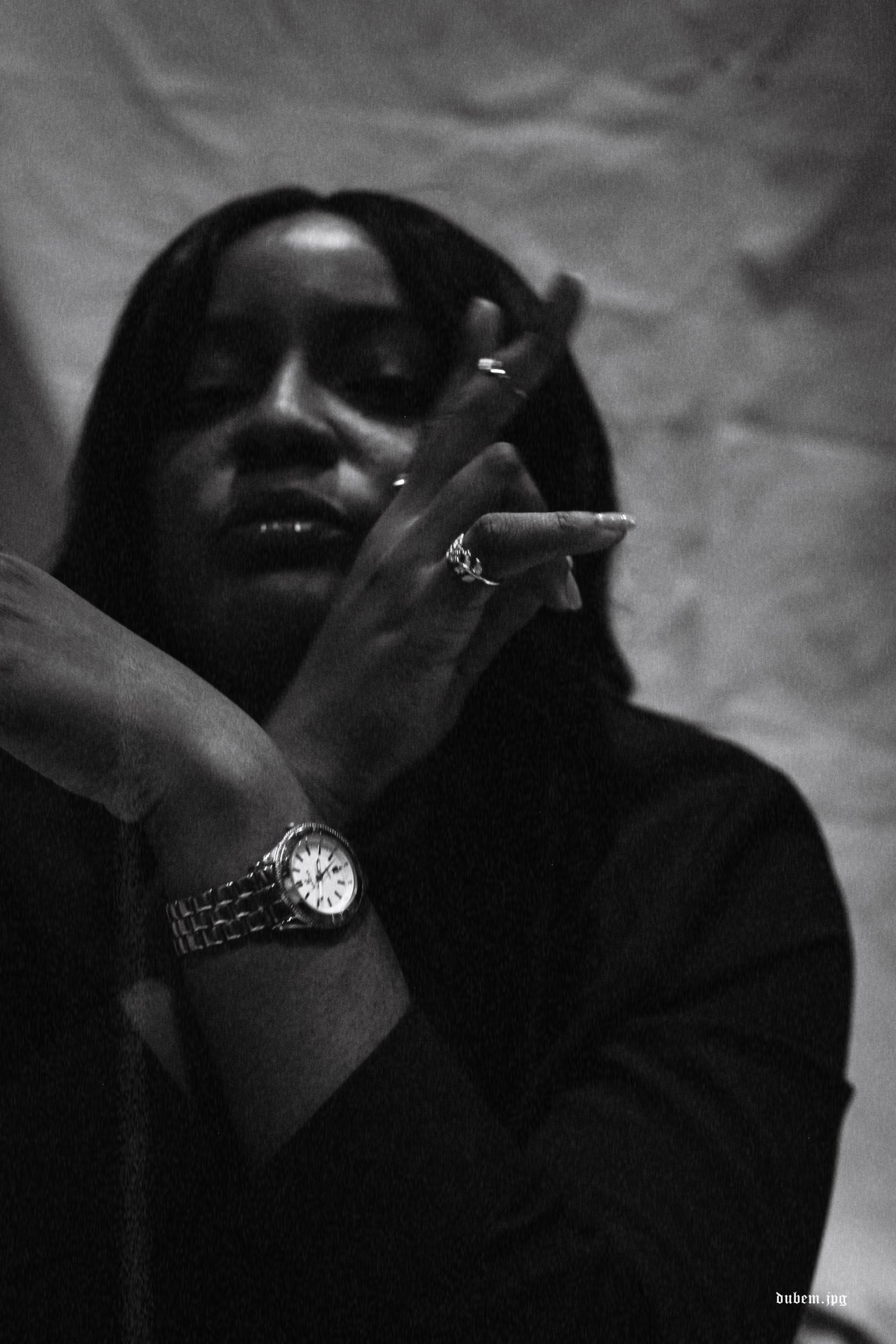
When we got to the topic of quality, her eyes lit up.
“To me, quality sound is something you feel. It’s not just loud or trendy. It’s intentional. It’s when you listen to a track and it surrounds you, even when you’re not wearing headphones. It’s balance.”
And what about people saying producers are recycling beats?
“I understand where that comes from,” she said. “But I think the bigger issue is that we, the creators, have forgotten that we set the tone—not the audience. Right now, it’s a numbers game. People are chasing streams, so everyone’s trying to replicate the same sound. But we owe it to ourselves to push boundaries.”
Kleros separates herself from the pack by refusing to make “regular” music.
“My beats always have a fusion. Even if it starts like something familiar, I find ways to evolve it into something unexpected.”
One of the most powerful parts of our conversation was her honesty about the industry’s imbalance—particularly how producers are often sidelined.
“Producers are still being underpaid, overlooked. It’s like everyone gets credit—the artist, the video director—except the person who built the entire song from scratch,” she said.
She shared how some producers are given just 10 points out of 100 on a song, and even that feels like a favor if you’re not working with a big name.
“That needs to change. Producers need to start valuing themselves more. Charge what you’re worth.”
Talking about “hits.”
“Can you predict a hit?” I asked.
“You can feel when a song is great. But a hit? That’s marketing. You can make the best song in the world, but without the right push, it’ll go nowhere. Sometimes the worst songs blow up simply because of strategy.”
And what about her own moment—her first big production milestone?
“That would 2023, Lemon Vinyl,” she said without hesitation. “I created Be there with Remade and mustapha. From the moment we recorded it, I knew it was special. The audience it pulled was unexpected.” She pointed out the song felt through to her artistic nature and satisfied who she is as a producer.
On her creative process she talked about something she picked up from a masterclass earlier in the year which was every single creative idea should be taken down as there are no mistakes and when you’ve maxed out you can take a rest go back and work on it technically. “Lay it down first”
Kleros loves originality and has a way of balancing it with different artistes which is the power of convincing especially when dealing with artistes who do not understand the uniqueness of one’s own sound or are yet to develop “Make it seem like it’s their idea” and another method for her is to not force it.
For Kleros, what tells them apart is the ability to tell a story through their creations.
“A producer can structure the song and then communicate it. It’s in this case the producer can help the artiste create the song.”
For Kleros “to whom much is given, much is expected. I like the responsibility” she disclosed that at the start of her career she didn’t think she was an inspiring person but now people reach out to be taught by her. “Last year, I taught a beginners production class with about 6-10 students for about two months.”
She shared that she is enjoying the whole process and giving back. “I like that people can see me as an example.”
The vision for Kleros five years from now is to have made a lot of inspiring music.
“I want a couple of Kleros productions on people’s playlists. I want to have won a couple awards too. I want to have introduced the world to new sides of Kleros and I pray for them to be received well.”
She announced that she has started Djing. And she hopes to have her own shows.
Her message to emerging producers, that young girl sitting in her room and playing with sounds unsure of the world of music and how to break in:
“Keep showing up. Don’t worry about how you will break in. If you are meant to, you will.” She shared that she believes in purpose and no knowledge is ever wasted.
“Don’t feel intimidated, there’s time for everything. Pick up skills as you go.”
Interview conducted and written by Andrea Andy.
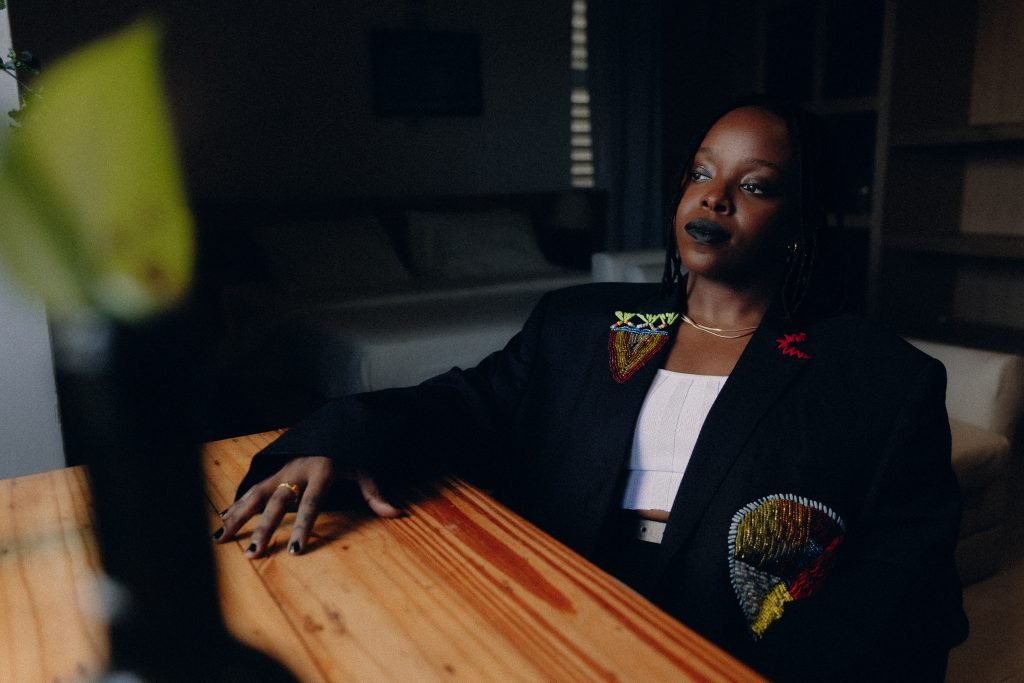
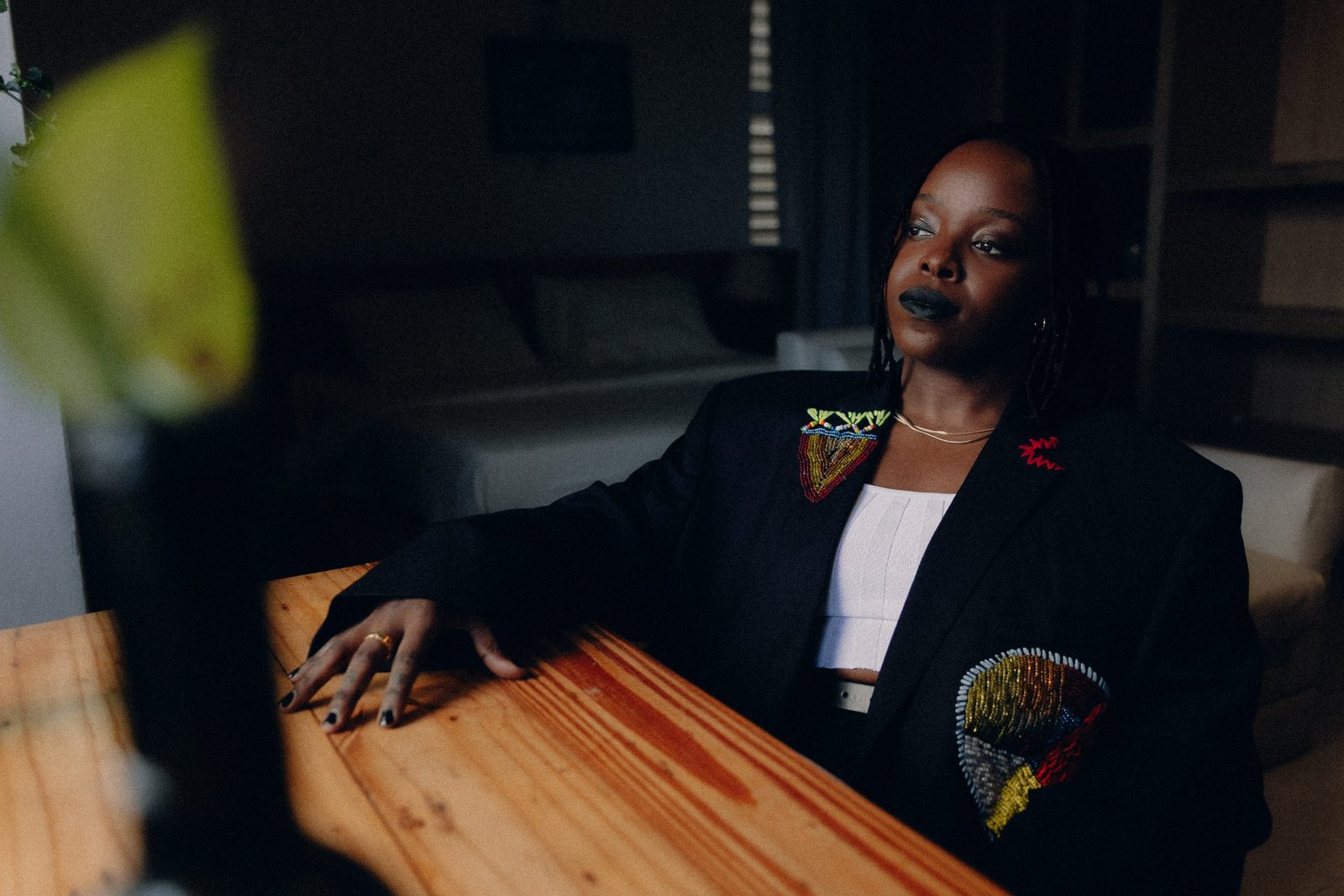
When you sit with Joyce Olong, you’re not just in conversation — you’re in communion with a creative spirit deeply attuned to her calling. A singer, songwriter, and producer with a journey rich in intentionality, Joyce is one of the few who not only wears many hats but glides effortlessly in each.
From the very start of our chat for The Book, it was clear that Joyce is not just here to make music — she’s here to walk in her purpose. She described discovering her gift at the tender age of seven. “I think I knew very early on that this was my gift… from seven, that’s when I was, like, sure that music is my way.” That conviction has never wavered, even when life presented tests that seemed crafted to break her resolve.
Born into a household where music of every kind echoed from room to room — from Gregorian chants to Whitney Houston, from Makossa to Lebanese pop — her sonic palette is broad and bold. That fusion of sounds is not just nostalgia. It’s alchemy. “It was a real mess of amazing music,” she recalls, laughing. But it’s clear: that “mess” was magic.
Interestingly, Joyce’s entry into music didn’t begin with her voice — it began with instruments. Piano. Saxophone. Rhythm. She was always curious about what made a song a song, even before she knew how to carry a note. “I actually didn’t start off singing. I started off just playing the piano… I wasn’t really a good singer,” she admits with a chuckle.
But then came a turning point — witnessing two girls named Joyce and Phoebe perform at a music competition. It lit a fire in her. “I was like, how did you do that?” That awe turned into obsession, and she began teaching herself how to make her voice match the sound she heard in her head.
Soon after, Joyce became her own band and choir director — drafting her siblings into mini studio sessions. “I’ll make my siblings come to my room… you sing this alto part, you sing this soprano…” It wasn’t just play. It was training. It was vision.
Her love for production remains her most profound. “I liked the idea of music coming out of nothing… from your mind to piano and then computer, and all of a sudden there’s music. It was very cool for me.”
For Joyce, the question of balancing creativity across roles doesn’t even apply. “For me, I like all the hats.”
“You’re not really spreading yourself thin… it’s the whole thing.” She believes artists should expand — sketch, paint, evolve. She’s fascinated by how different producers approach their process. “I found myself watching people make beats… trying to collect packs… some people be hoarding crack-level plugins!”
There’s joy in her curiosity. There’s purpose in her process. Whether she’s sketching a melody sparked by the strum of a guitar or pulling feelings out of thin air to lace into her lyrics, the creative process remains, to her, “just abracadabra. Tinkerbell stuff.”
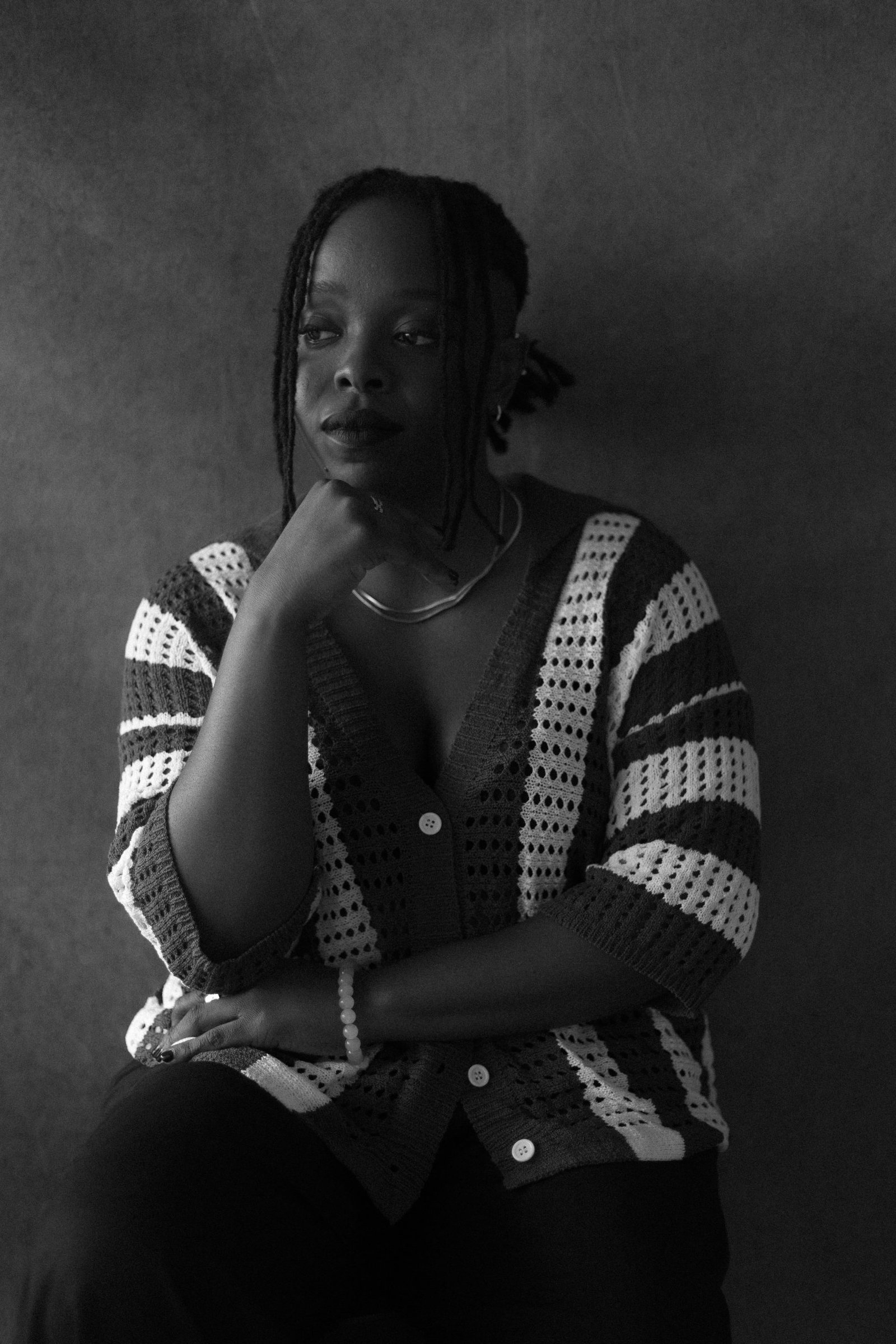
When we talked about staying true to her artistry in an industry that often prizes trends, commercial appeal over the truth of your artistry, Joyce got real. “You have to be stubborn… somebody has to say, ‘ah, she’s difficult to work with.’ That’s why you’re doing the right thing.” She likens the industry to a game — and artists, to birds. “You can be a crane, be a flamingo… a nice bird that just does their own thing.” She advises to always keep something for yourself but not always be too attached to your work.
That self-awareness leads her to approach music with care and detachment. “You love her when you let her go,” she says, referring to the art of releasing music. She knows that sometimes the songs she creates may not fit in — but that doesn’t mean they don’t belong.
As a woman in a male-dominated industry, Joyce acknowledges the power of community. She spoke fondly of a recent music camp with Dami Oniru — a space for female producers, musicians, and writers. There was yoga. There was mindfulness. But most importantly, there was music — unfiltered, unfettered.
“Make friends, do your part, and go home,” she advised. “Always go where you are invited. Don’t loiter.” It was both humorous and sobering — a reflection of navigating an industry that often doesn’t create enough room for women to simply be.
One of Joyce’s most vulnerable revelations was about losing an entire project — not once, but thrice, this was in 2021/2022. “My laptop, my hard drives, my Google Drive… gone. Like, how did you get there?” But instead of letting it break her, she saw it as divine redirection. “Losing music made me want to push harder… giving up on music is like giving up on myself.”
It’s clear that every loss, every silence, every glitch in the system has only fortified her purpose. It was at this point she decided she cannot give up on music. “You don’t give up until you are done.”
She reflected on how she was very conscious of what type of music she made but now she is more herself, “more daring, courageous – I prayed for this.”
On new emotions in her music, she highlighted that she earlier used to communicate problems and where she was but in Joyce’s latest project — an 8-song live EP — is an intentional pivot. “I want to convey comfort and luxury.” It’s a shift from pain to peace, from chaos to clarity. She’s not trying to rush listeners. She’s inviting them to pace life with her music.
The producer in her is also seeking growth. She’s already thinking about her next soundscape — something unlike what she just released. “I brought out my R&B, my ambient… now I want to do something different, to improve my skills.”
Five years from now, Joyce hopes to be both an artist and an enabler of greatness. “I want to help others be great, be of good service… I just pray God blesses me with enough resources to bless other people with.”
In a world obsessed with metrics, Joyce is championing something deeper — community, care, and creativity. She warns against a numbers-first approach in African music. “Respect your consumers. We need better structures. If there’s structure, we’re good to go.”
She talked about how we are a good source as a people and as an Industry and with the right structure we would be limitless.
As a female producer, Joyce believes women bring a unique sensitivity to sound. “It’s like we hear things differently, feel it differently.” She recounts a session with Keziah Mallam and GBots “It started as a jazz beat… it became Afro jazz… it had a pink touch. Finesse.”
Her takeaway? “We need more ladies in the space producing. There’s a touch — a touch I like.”
To future generations, Joyce Olong would say, “Speak life. Manifest your future.” Her music is a vessel for belief, a call to faith. “I want my music to make people believe. Believe. Have faith.”
And with that, the conversation — the communion — ends, not with a goodbye, but a benediction.
Interview conducted and written by Andrea Andy.